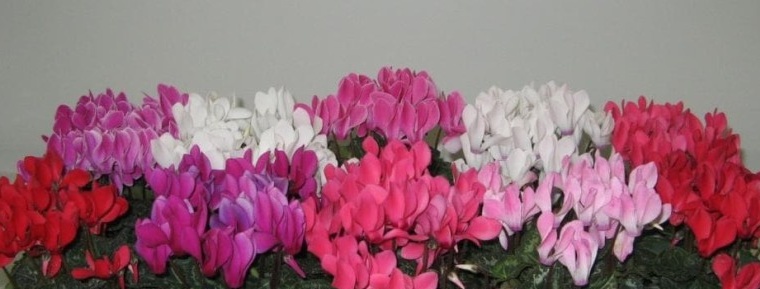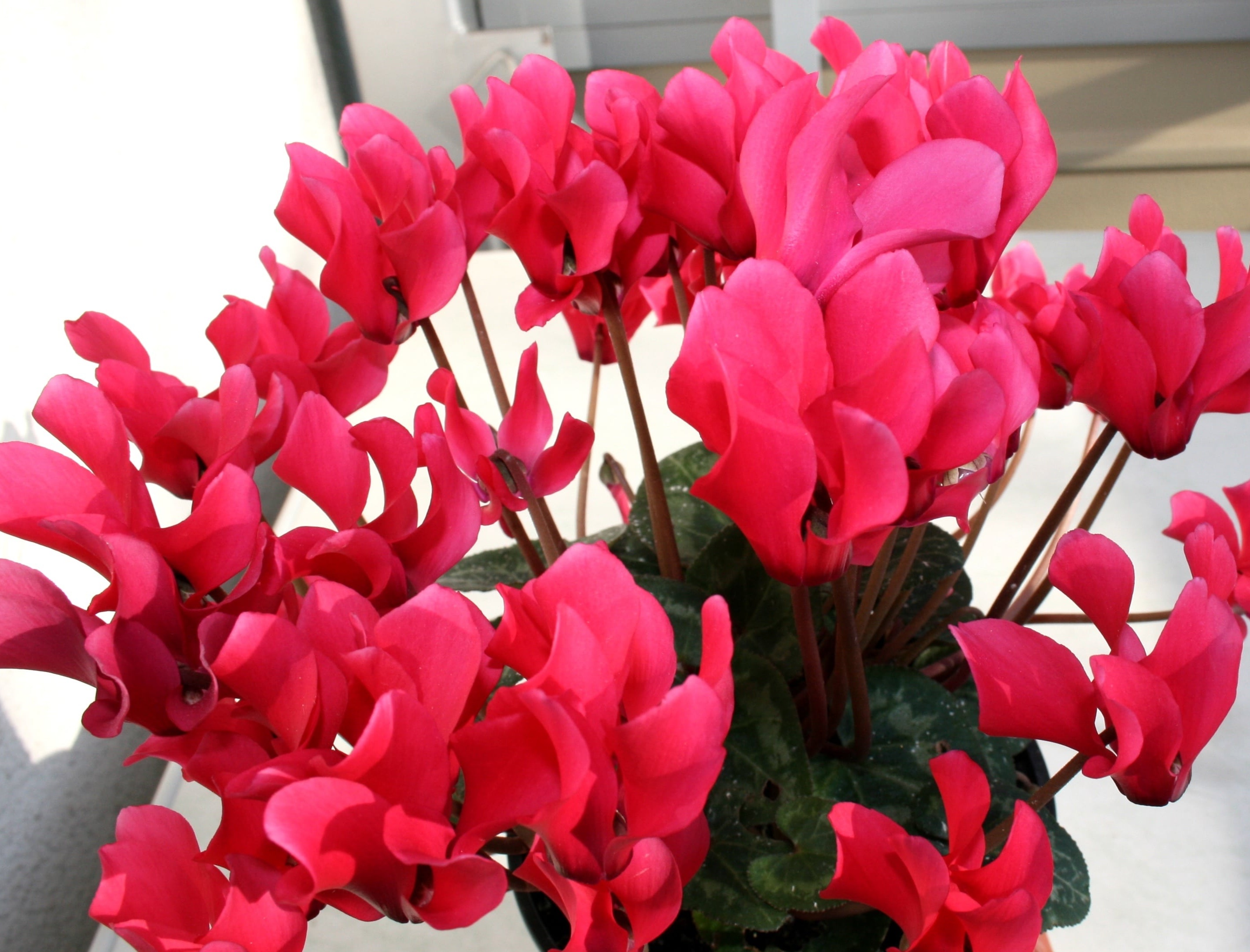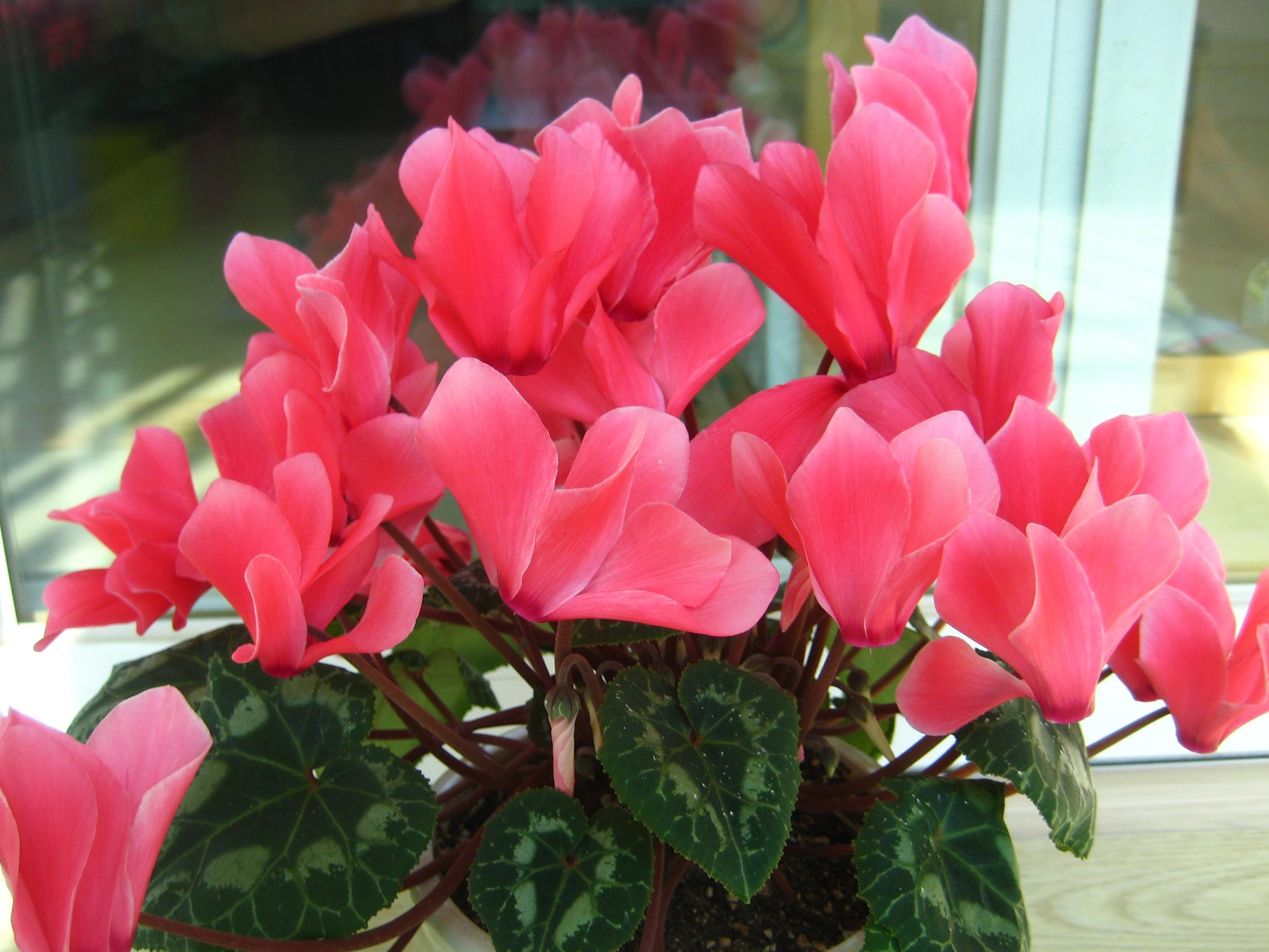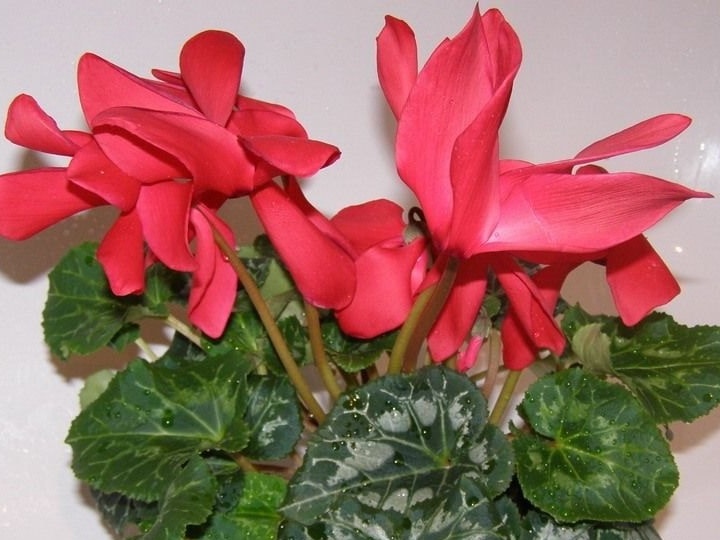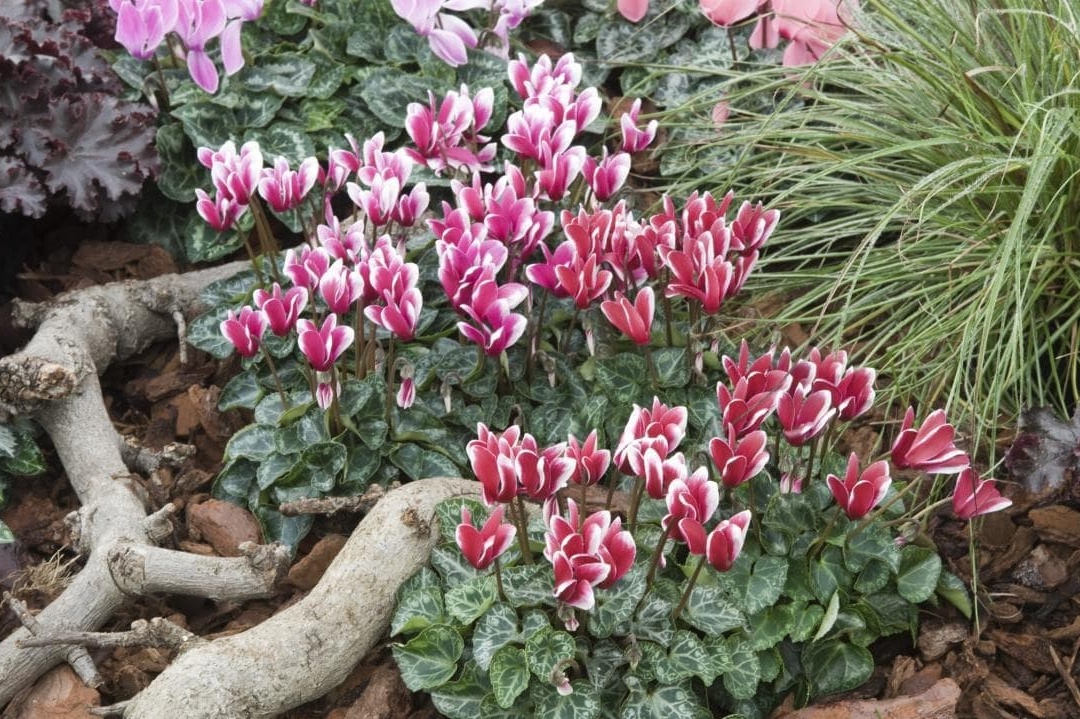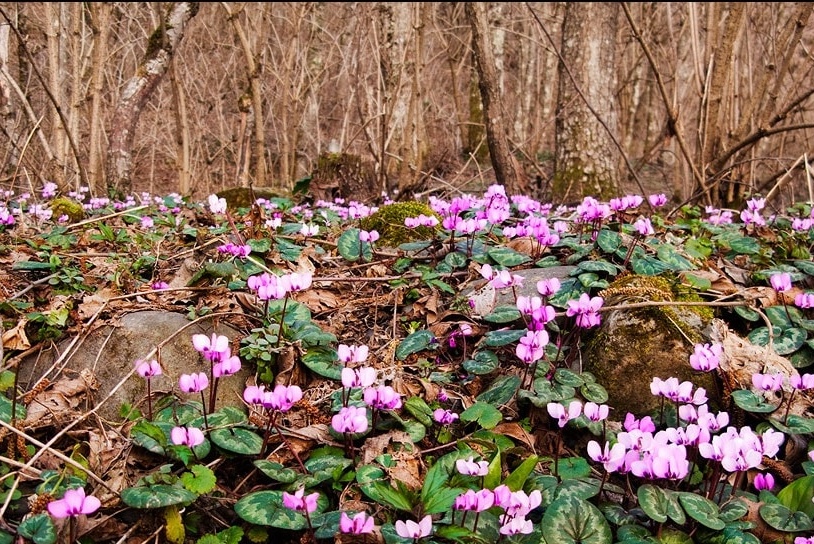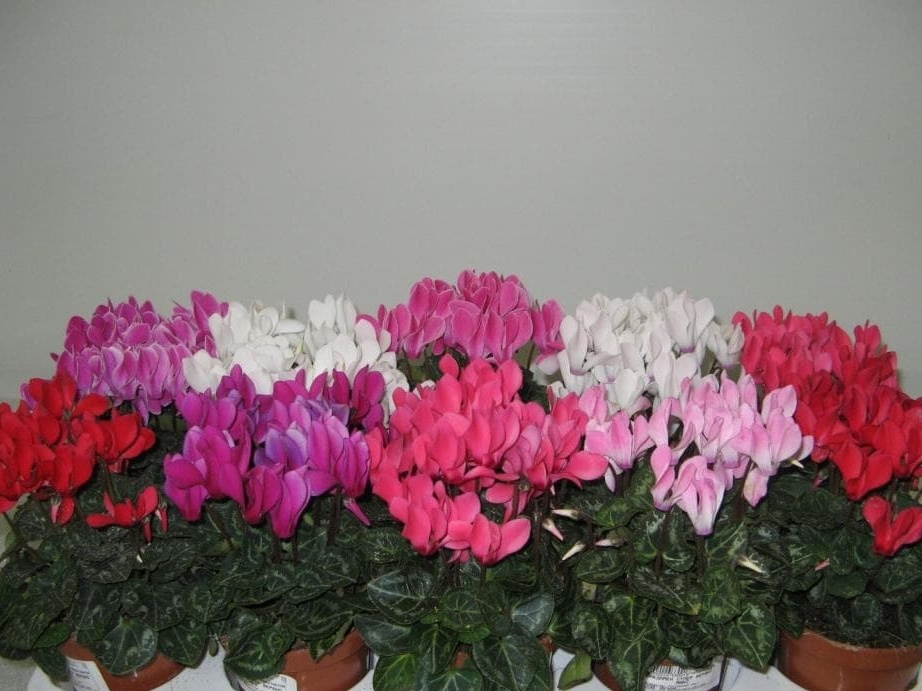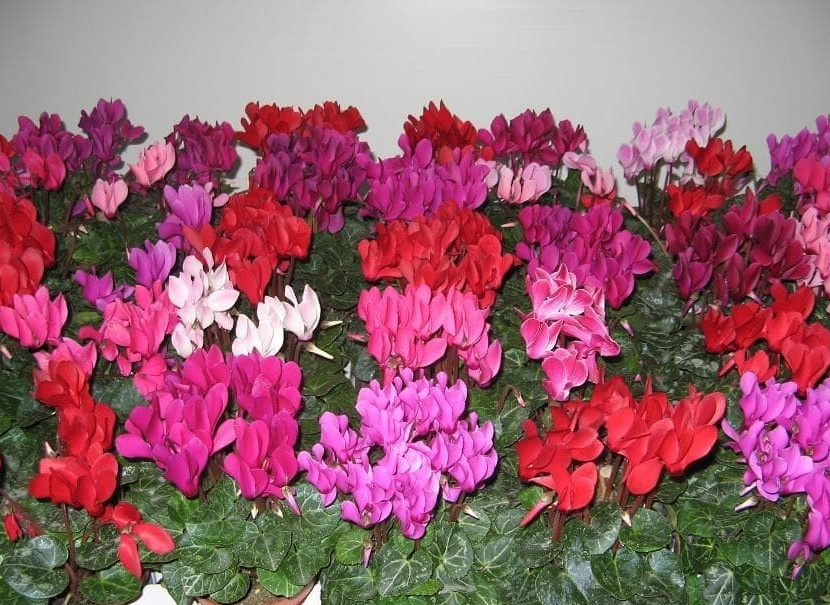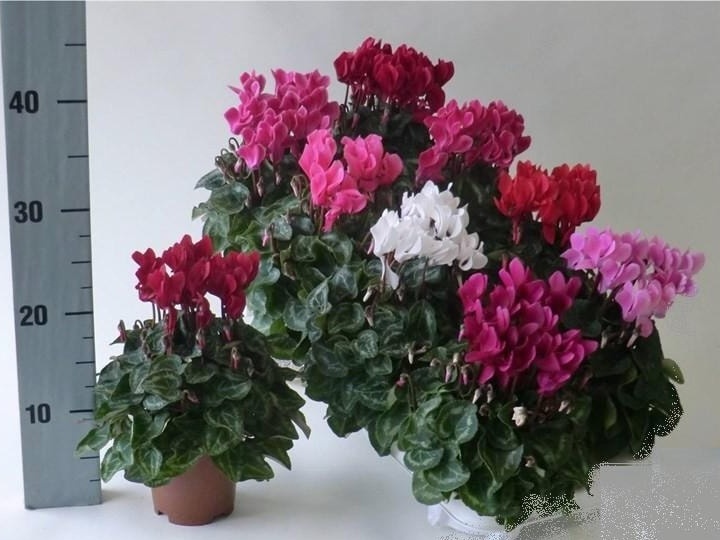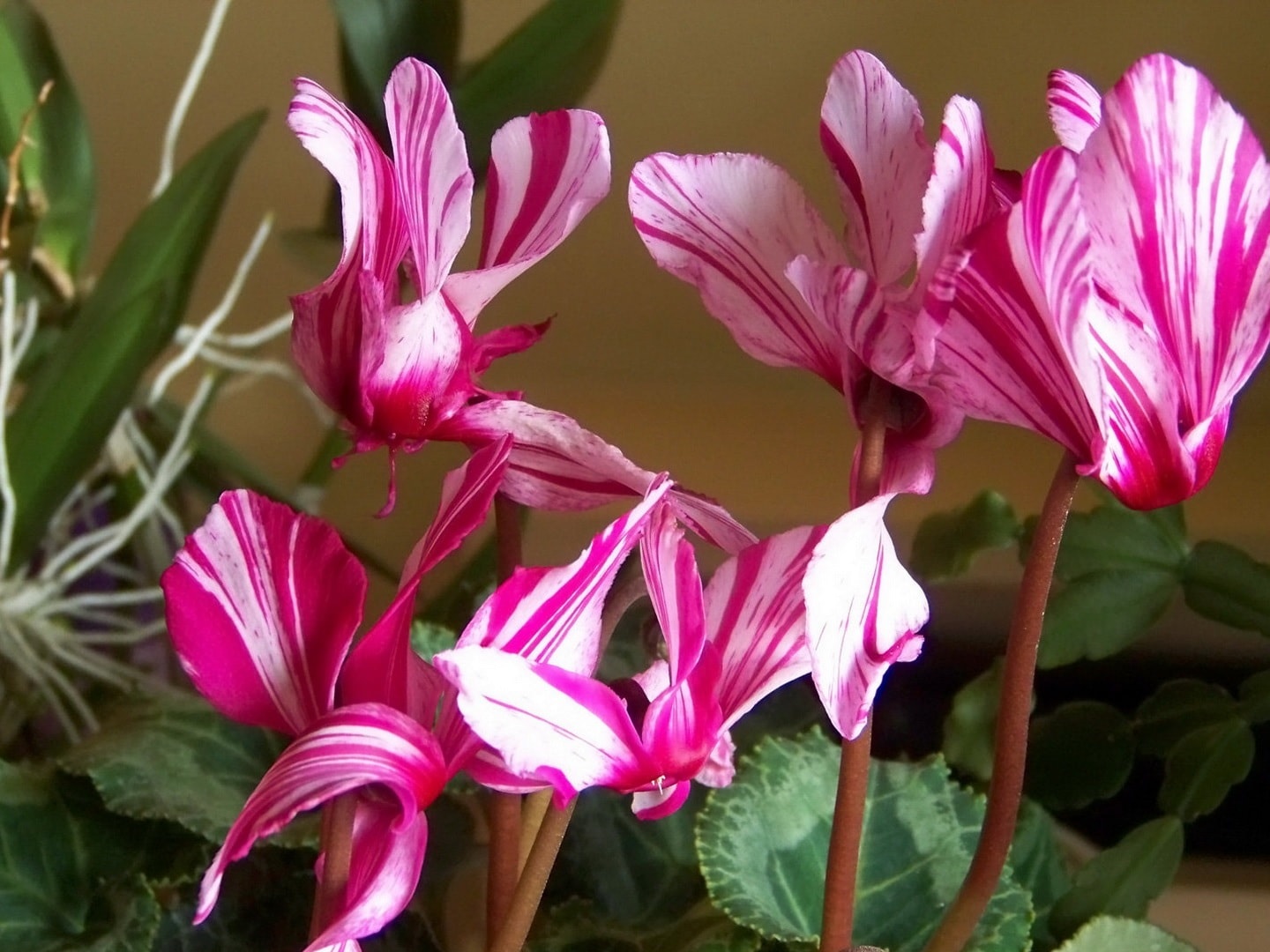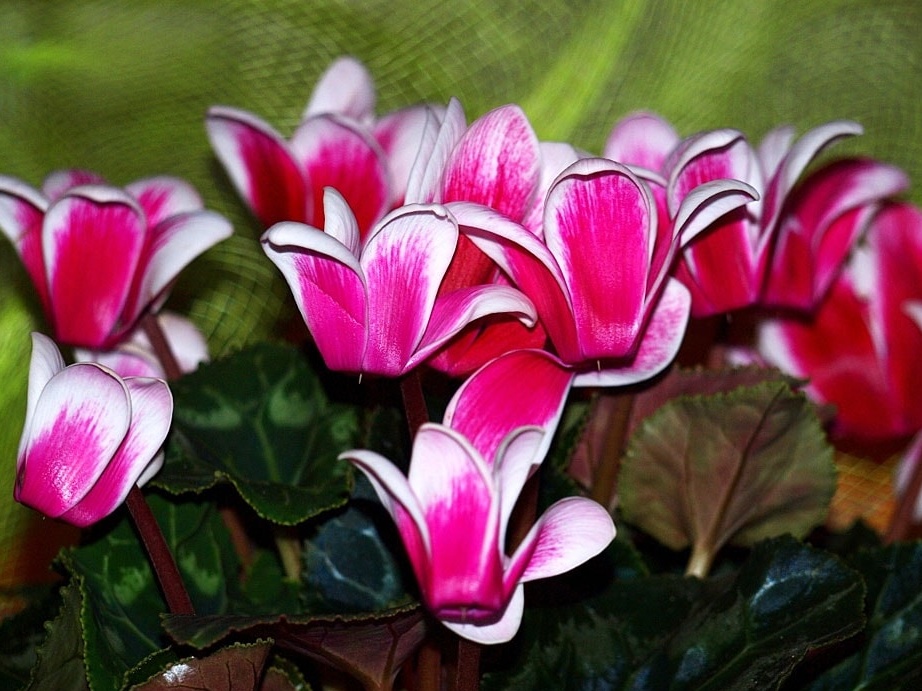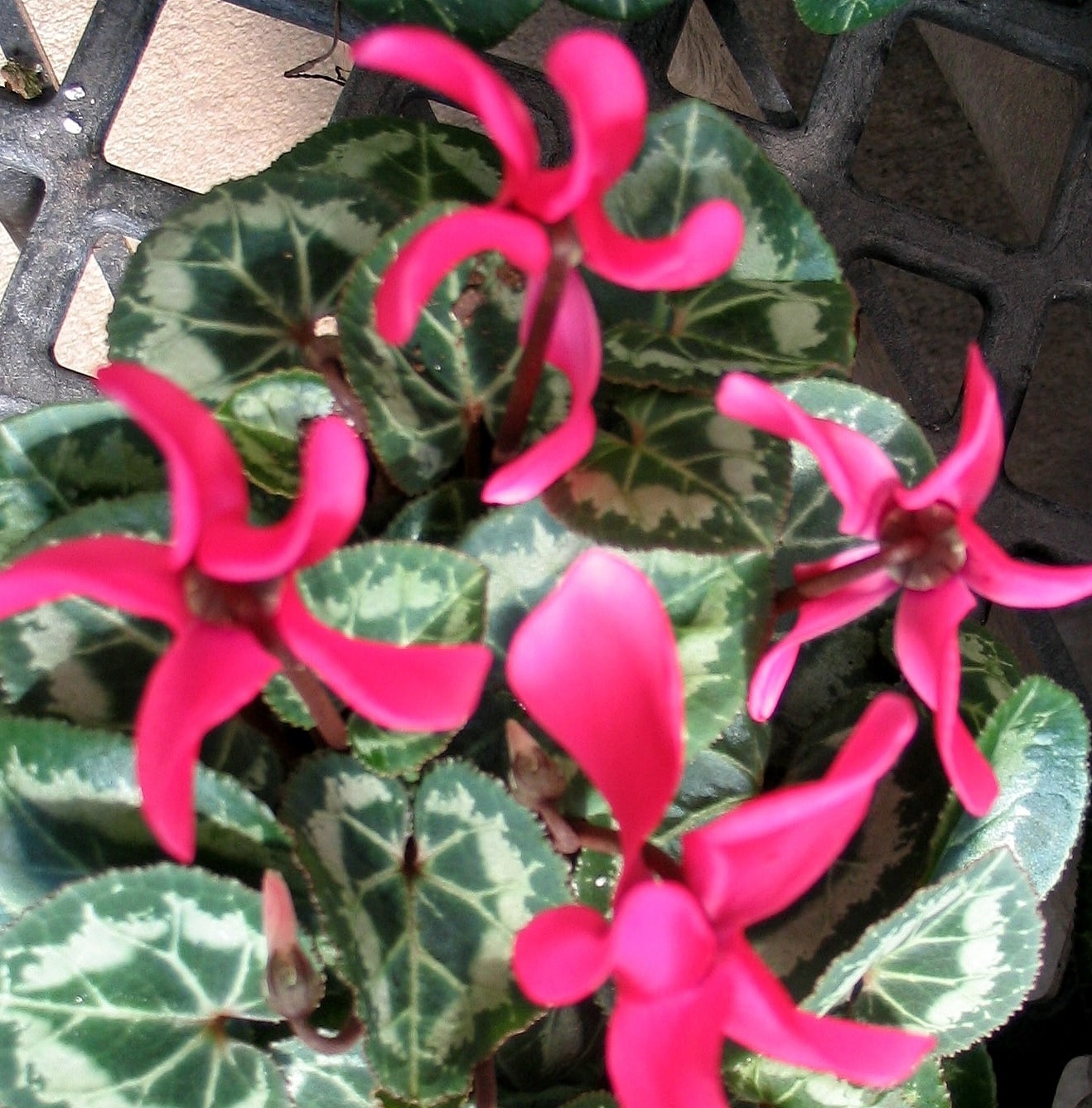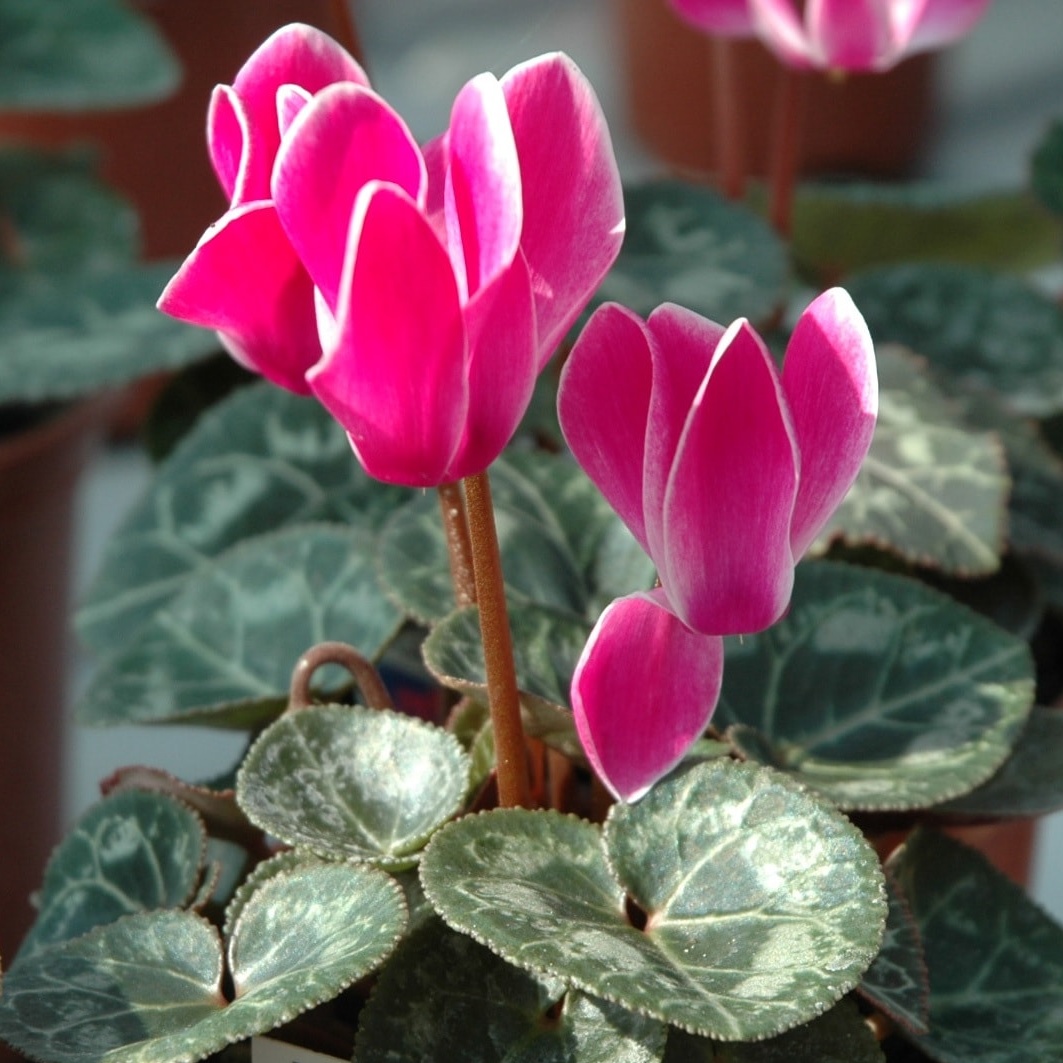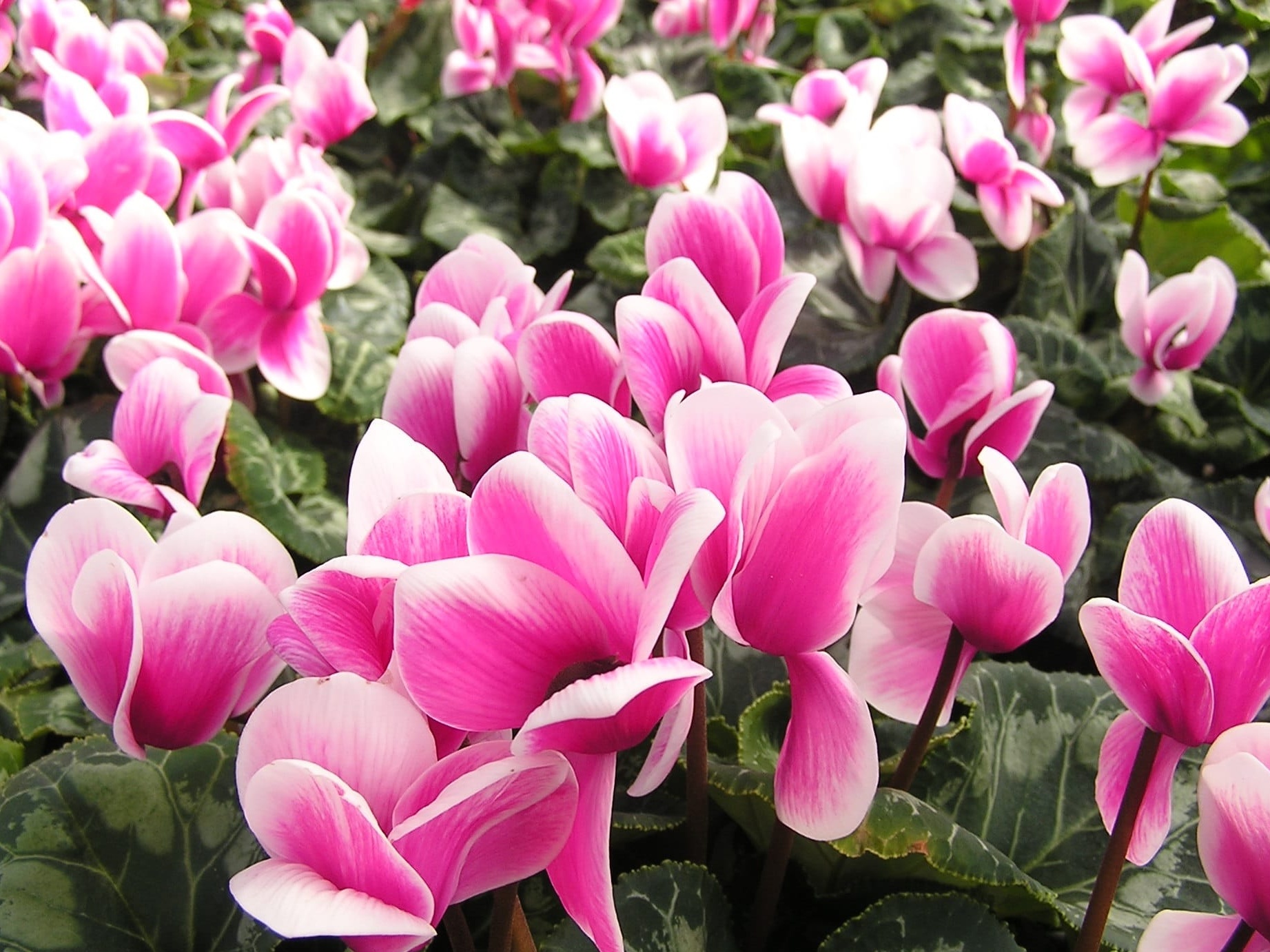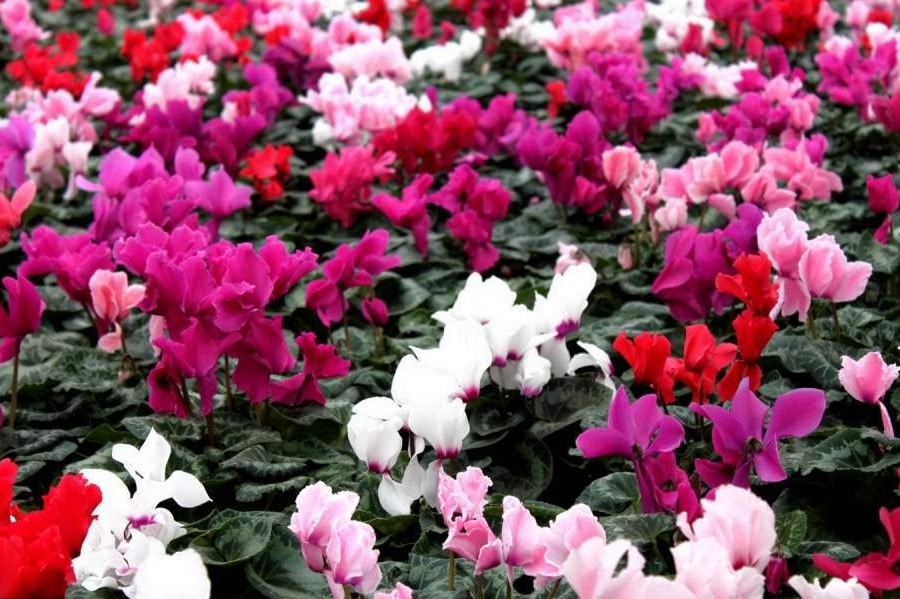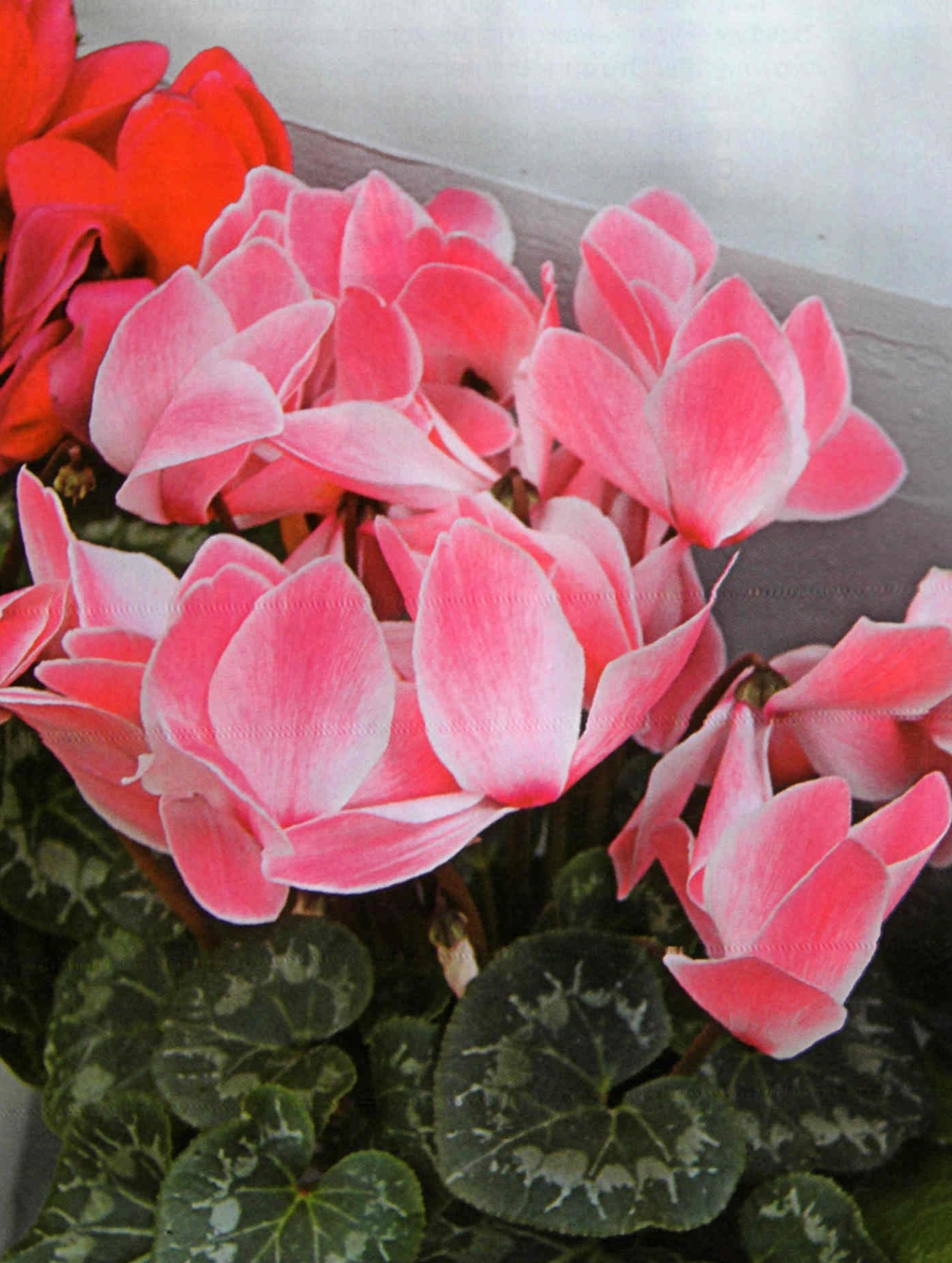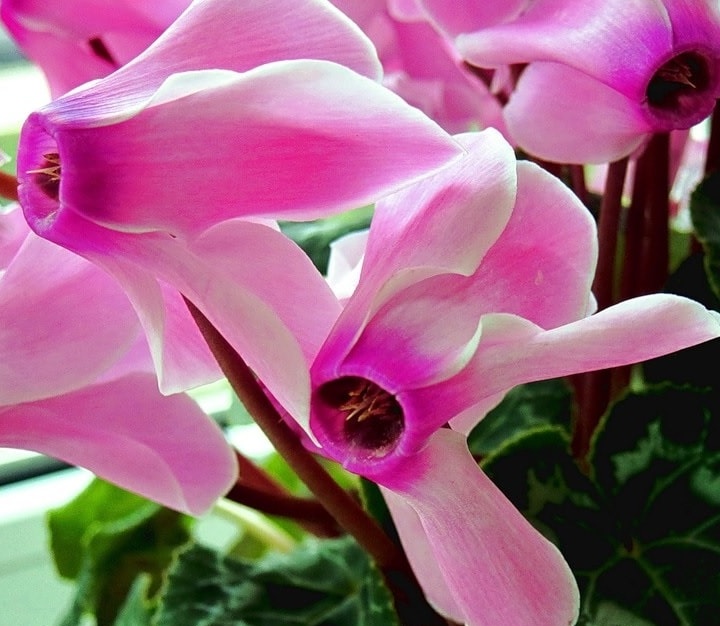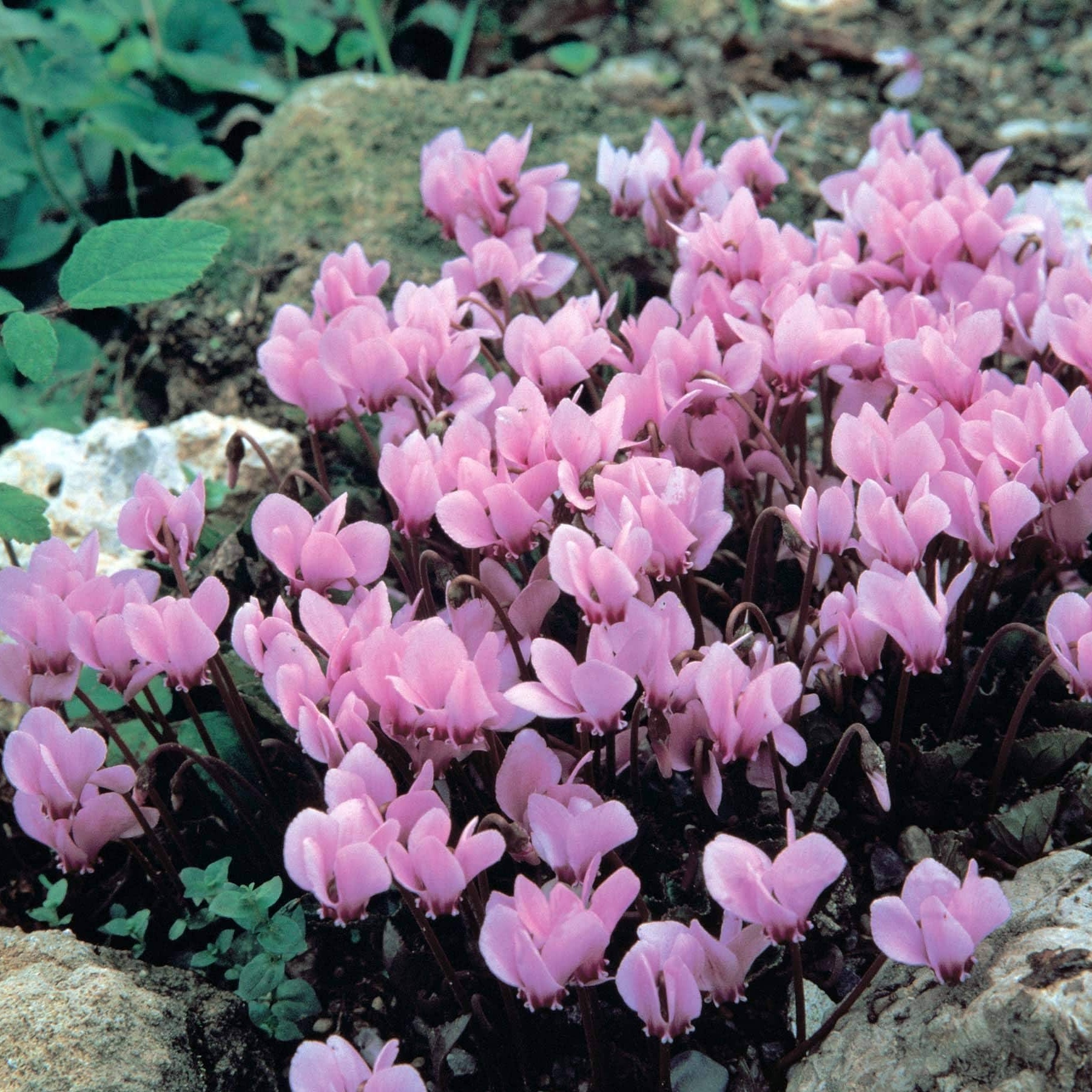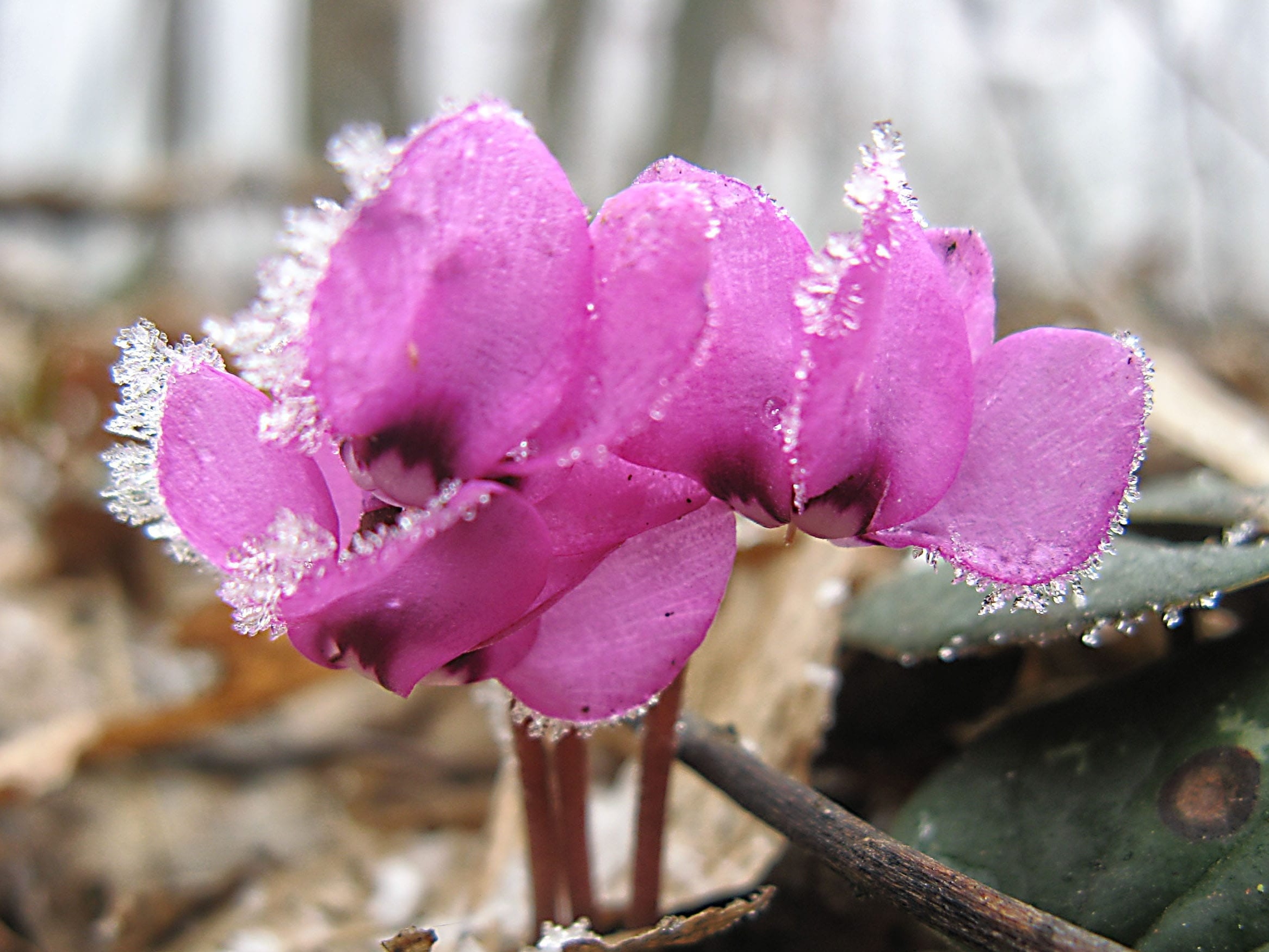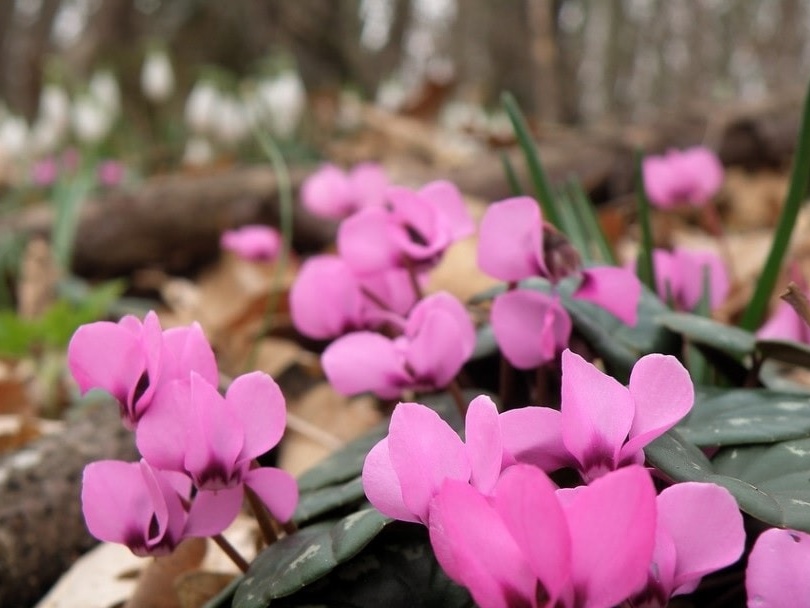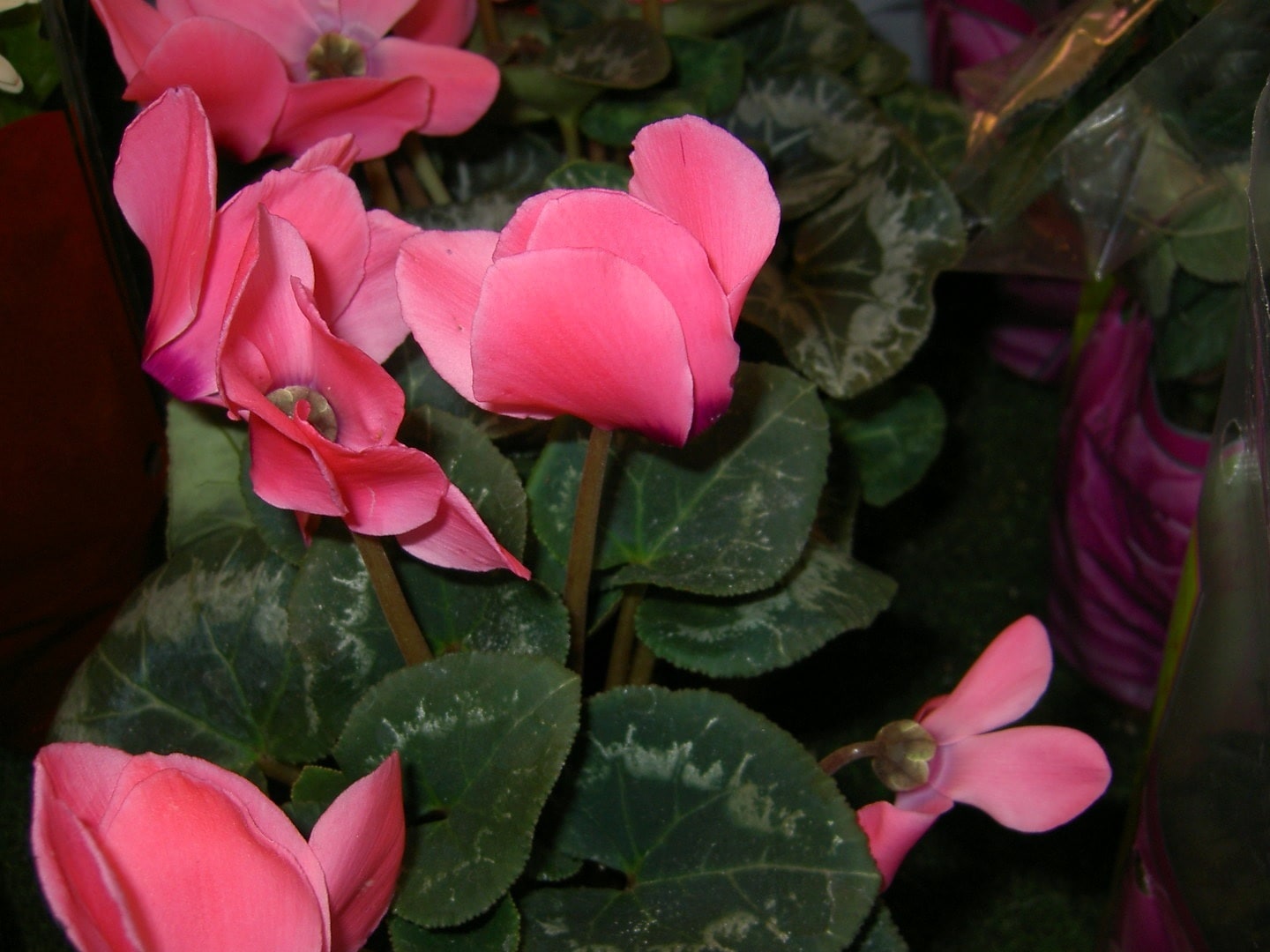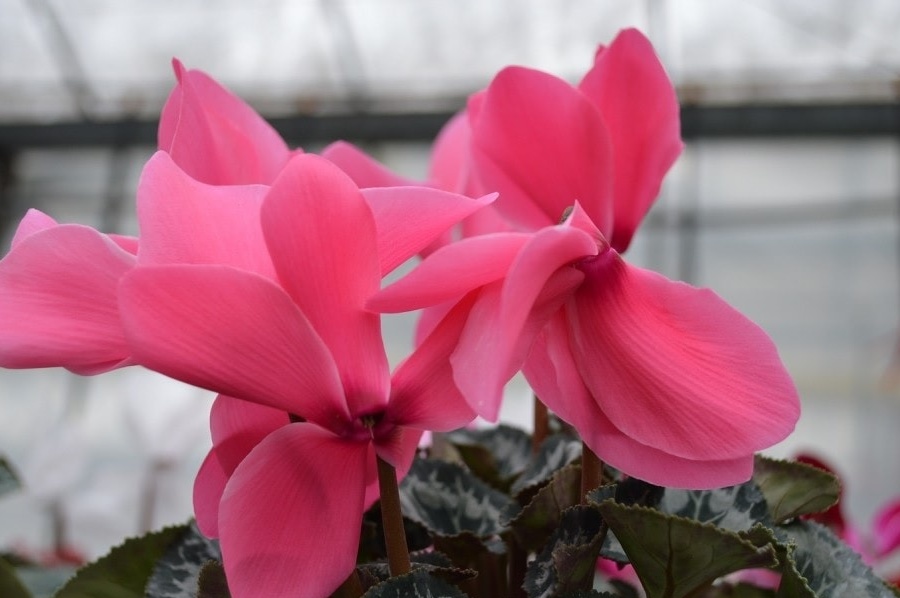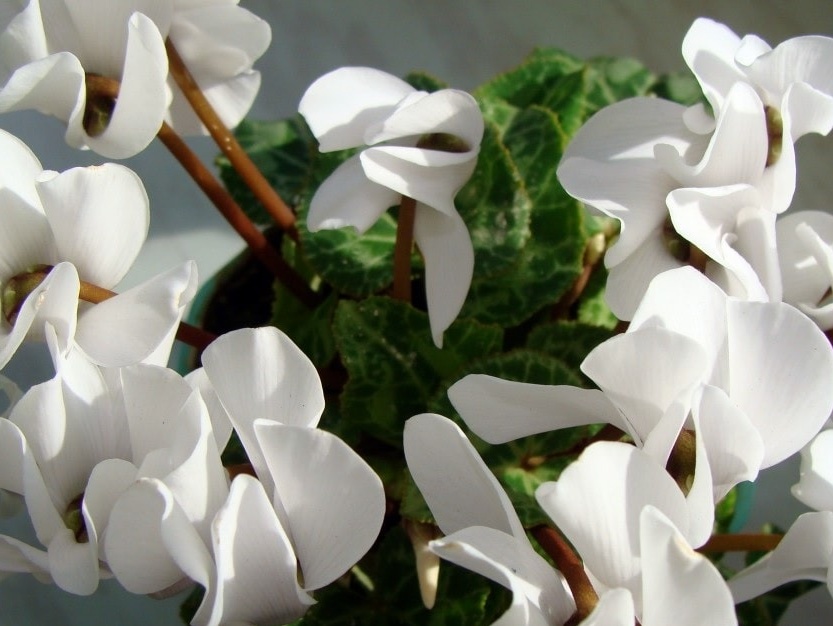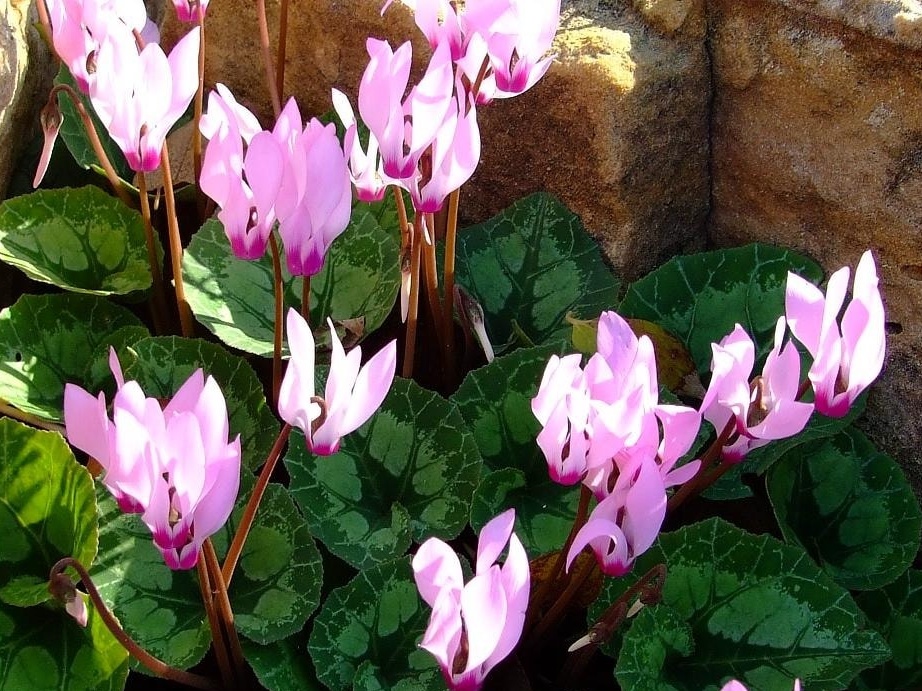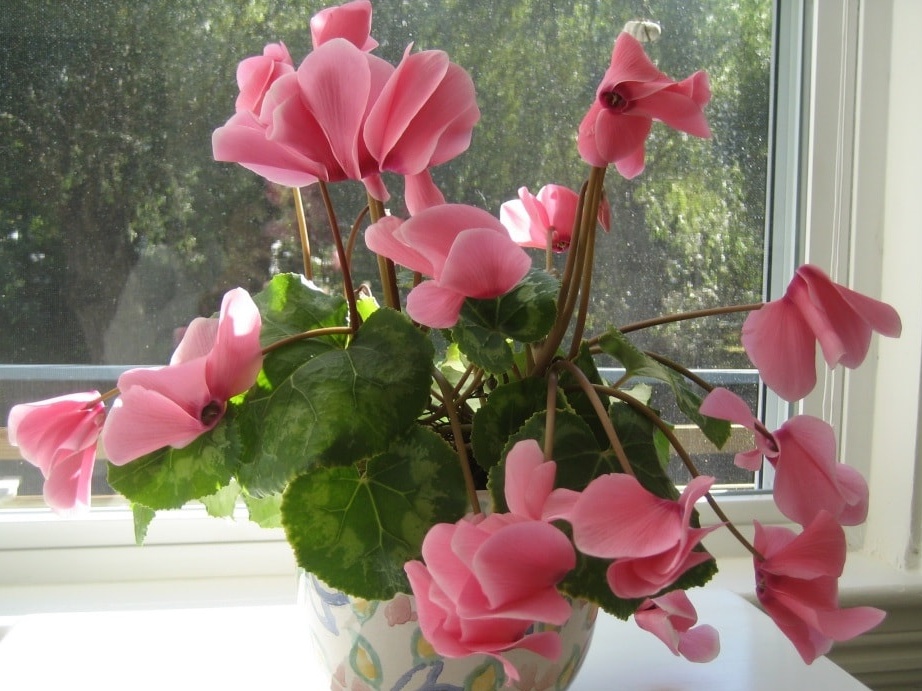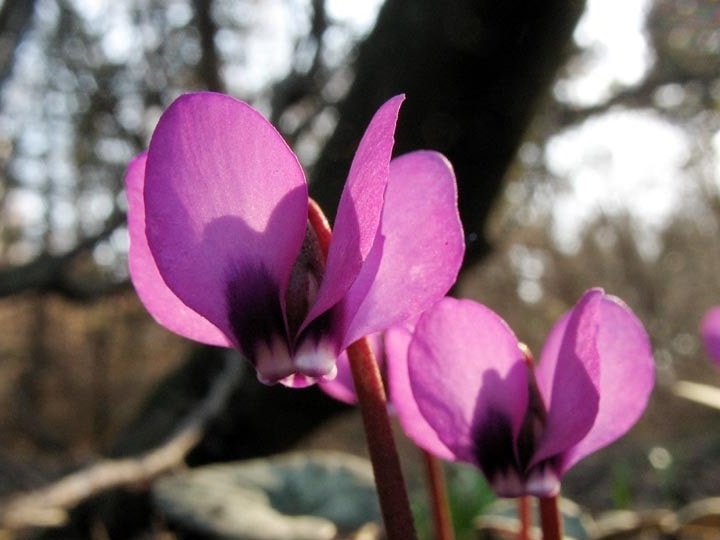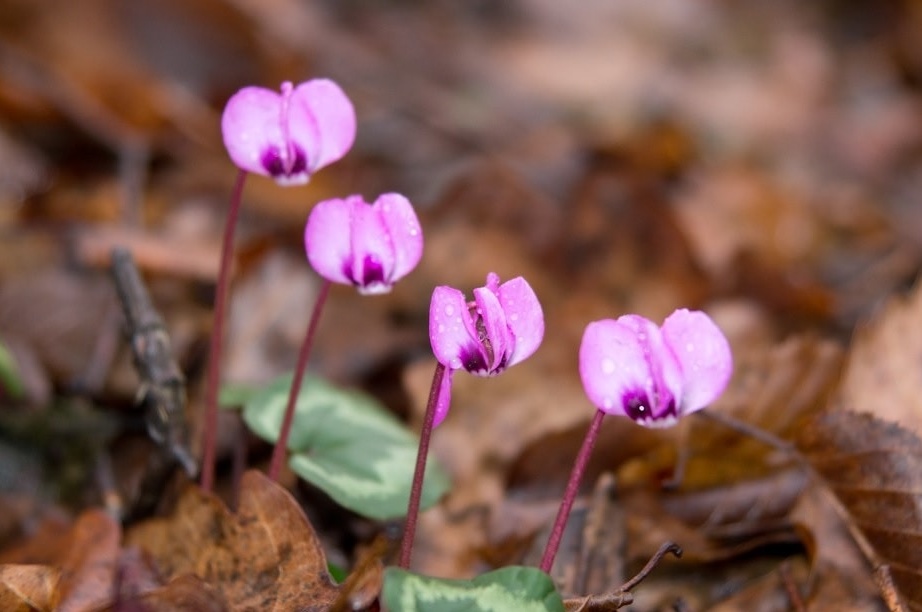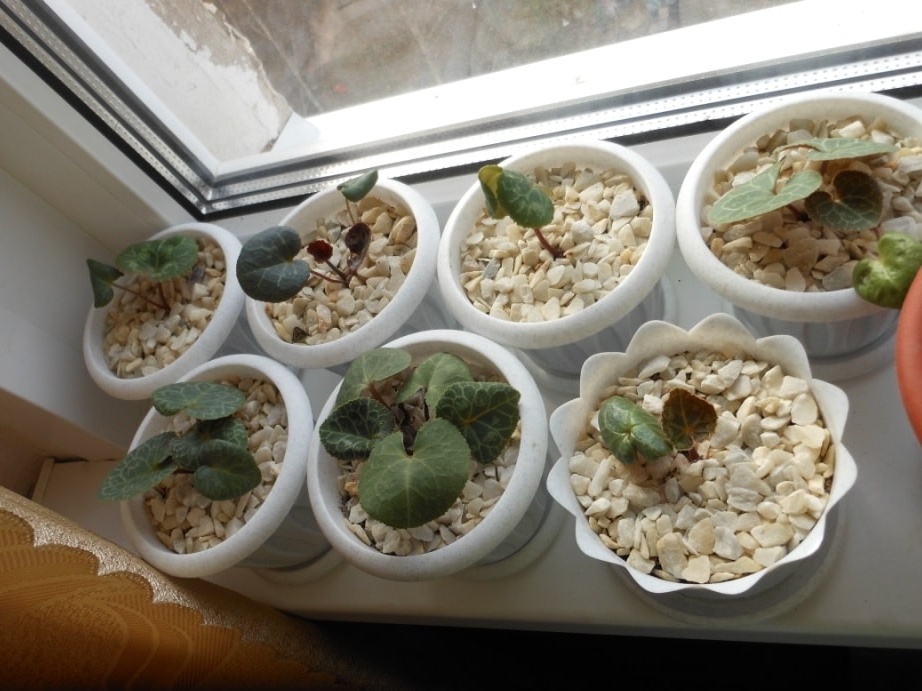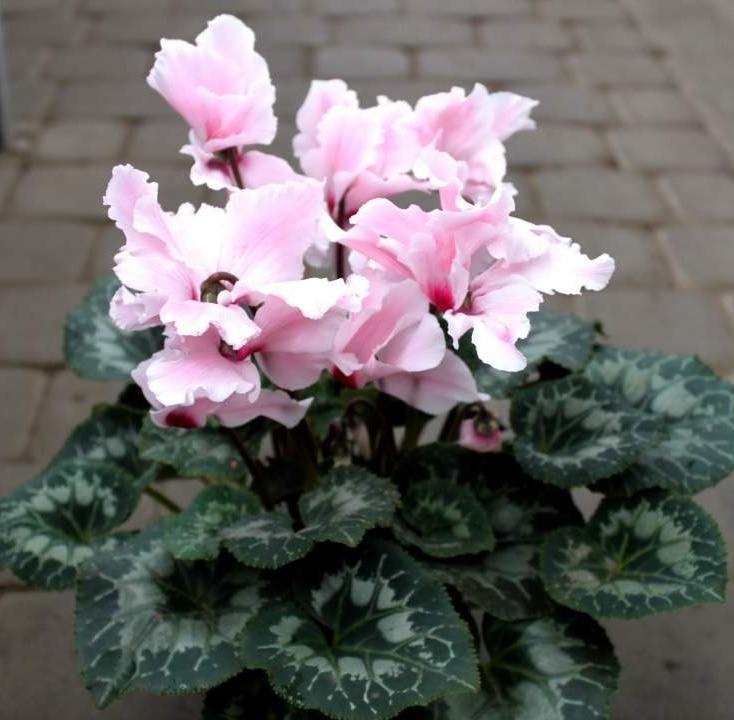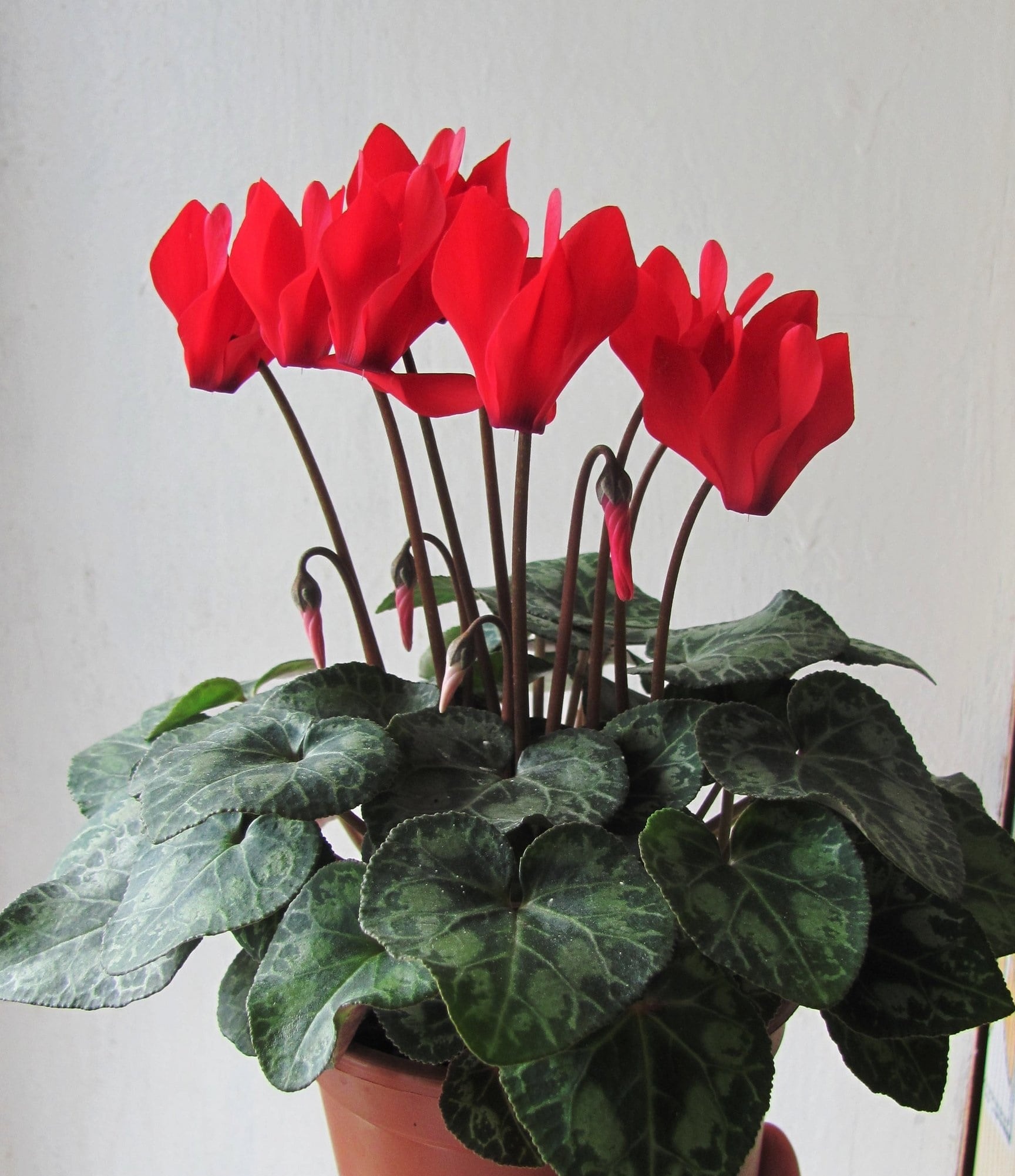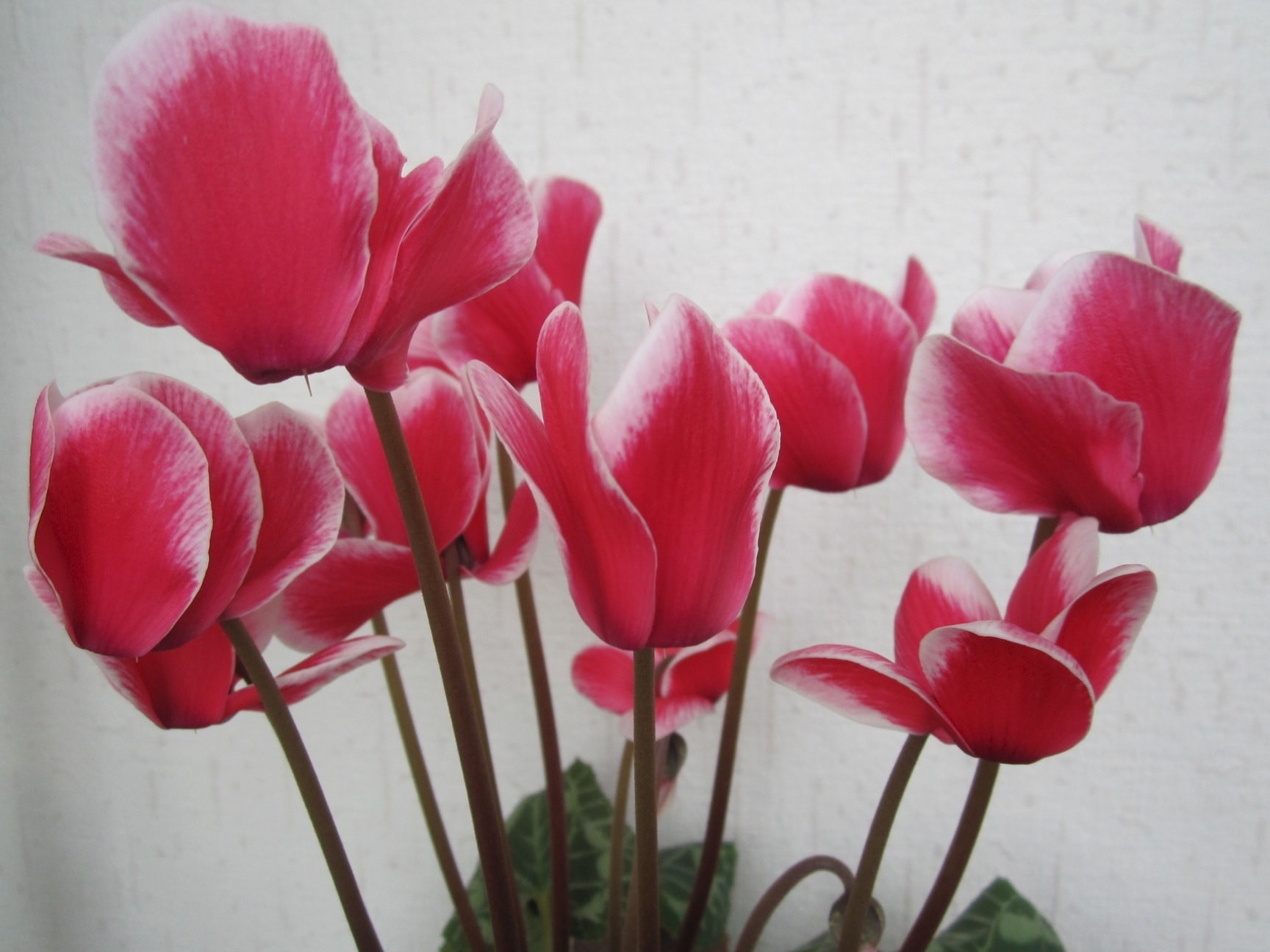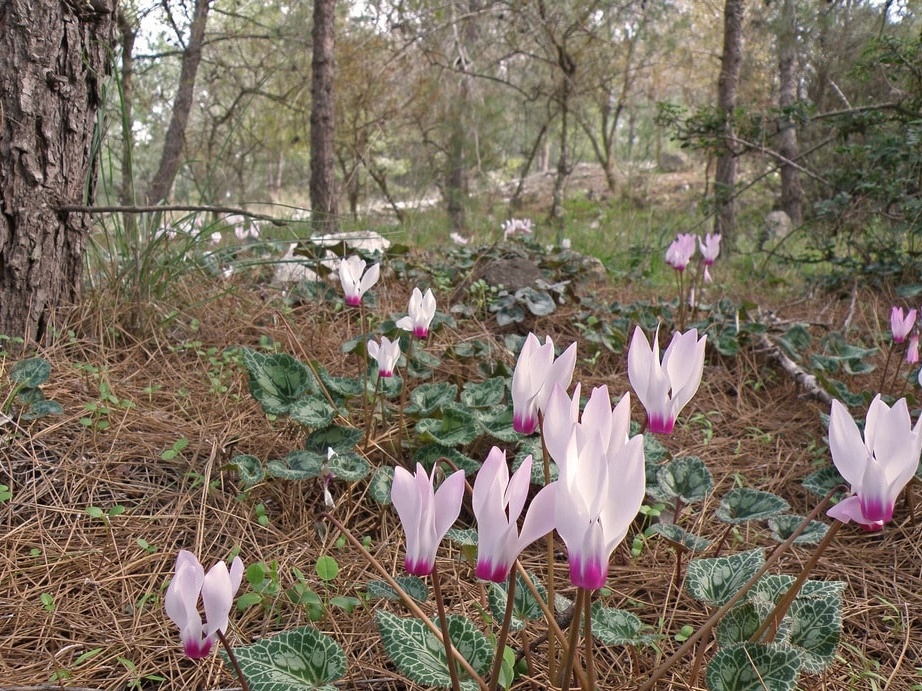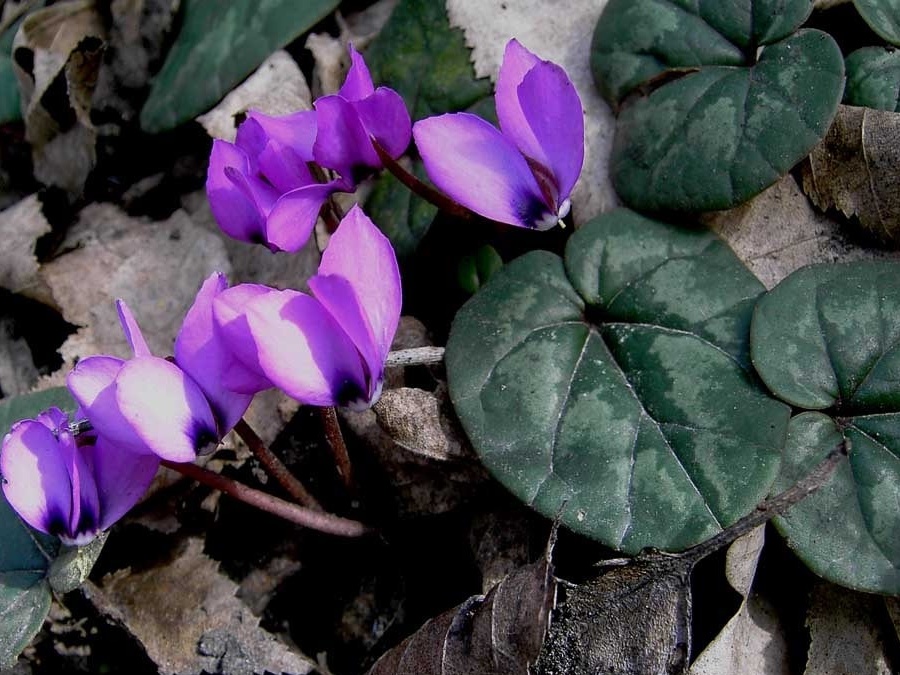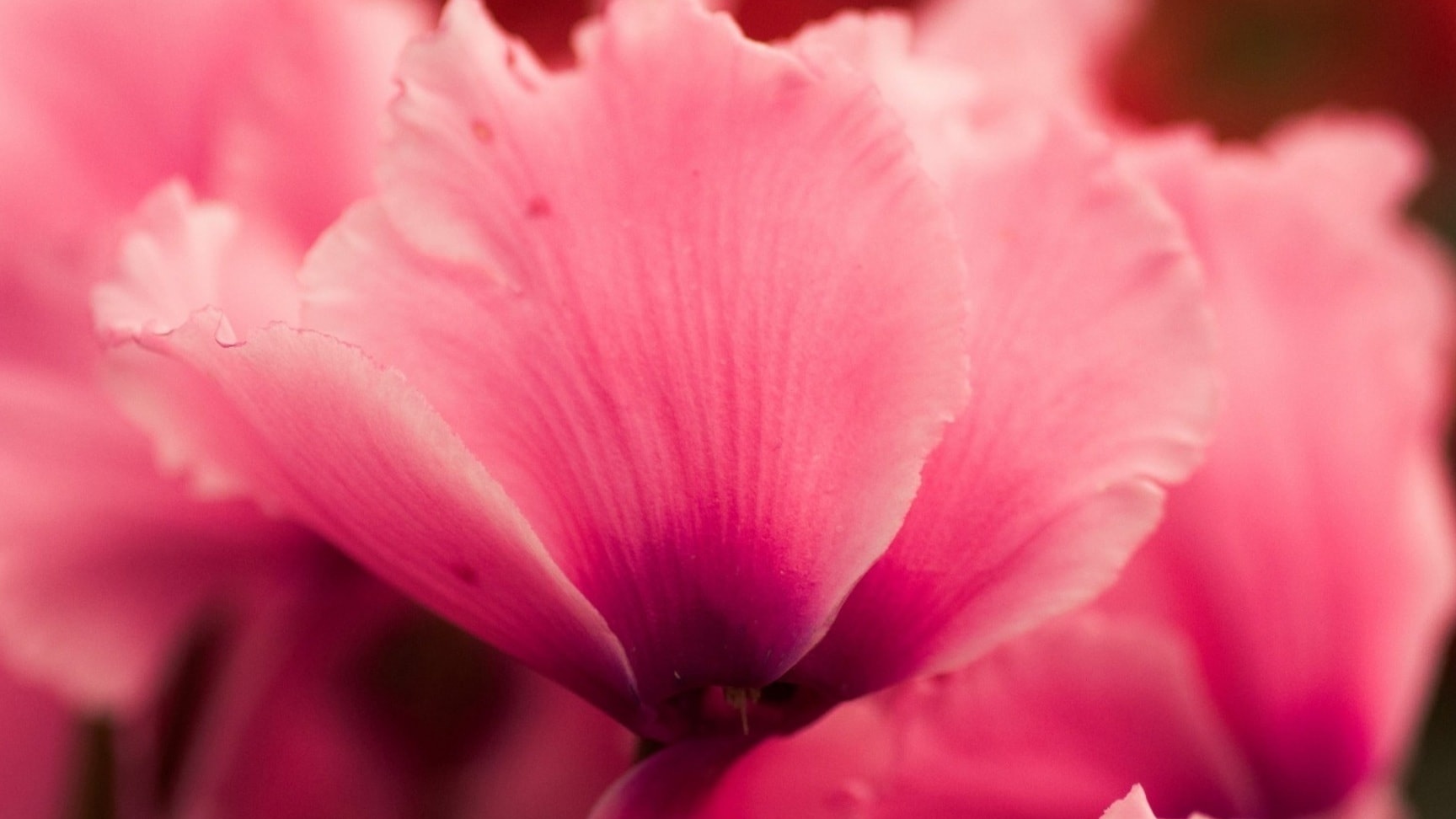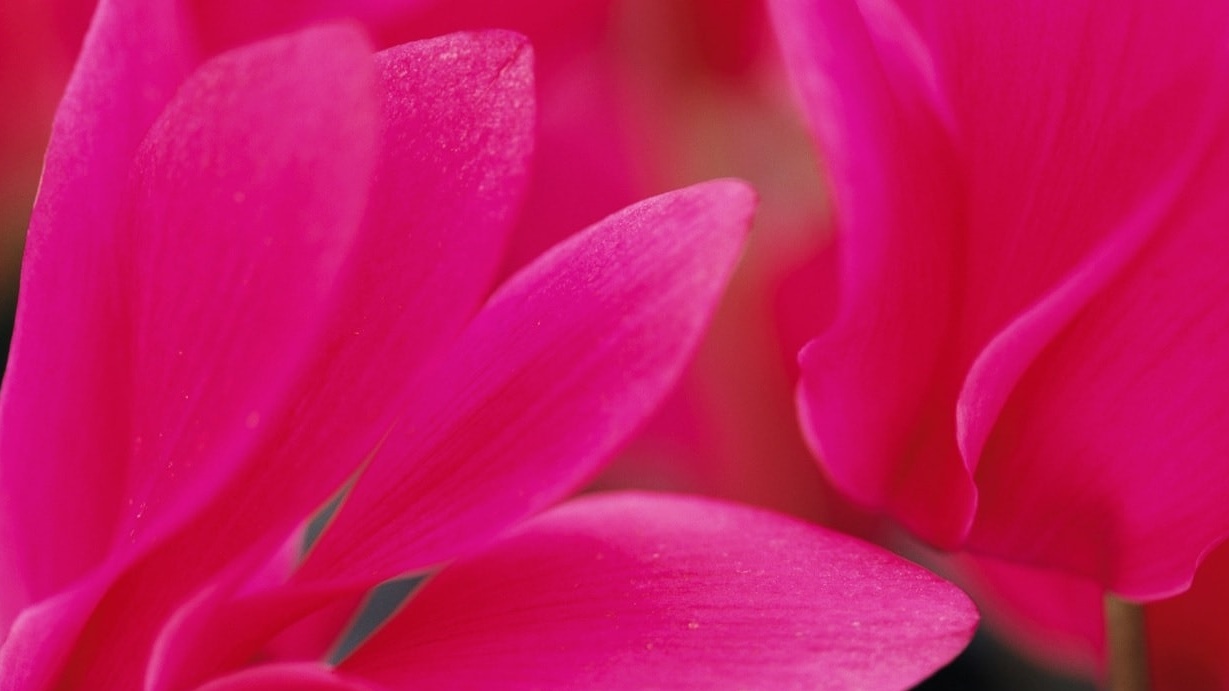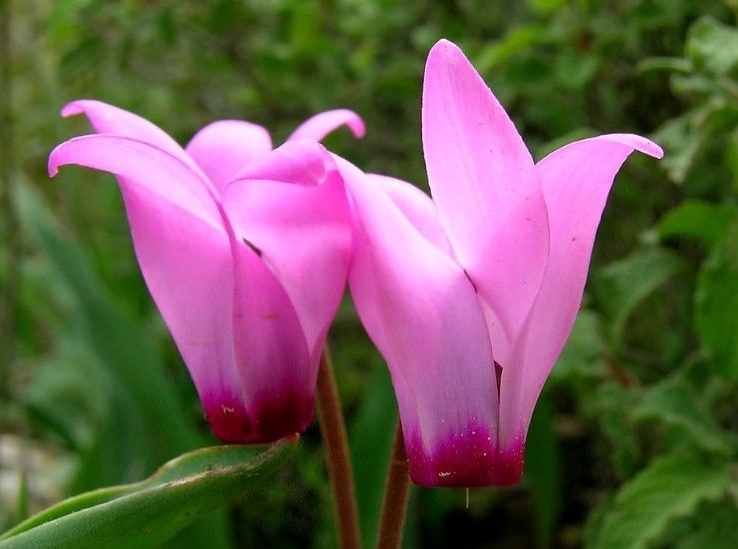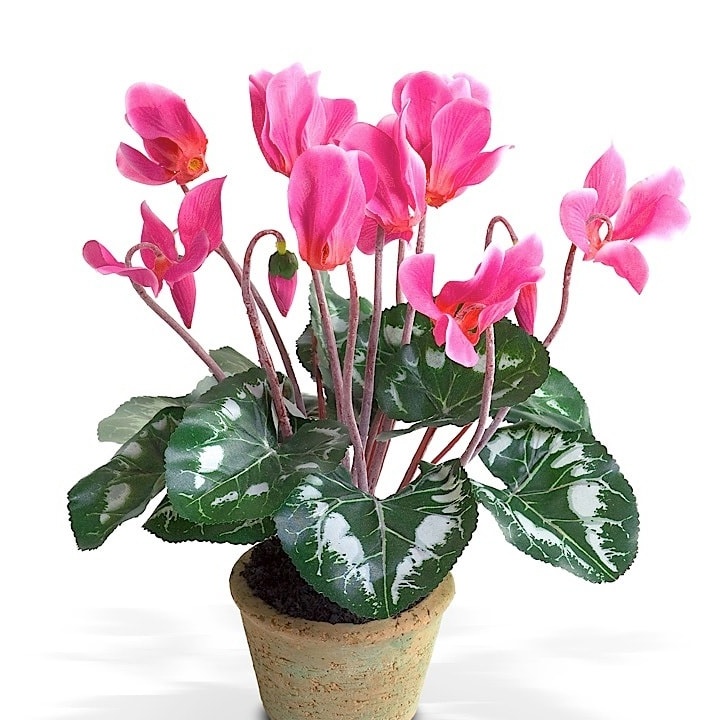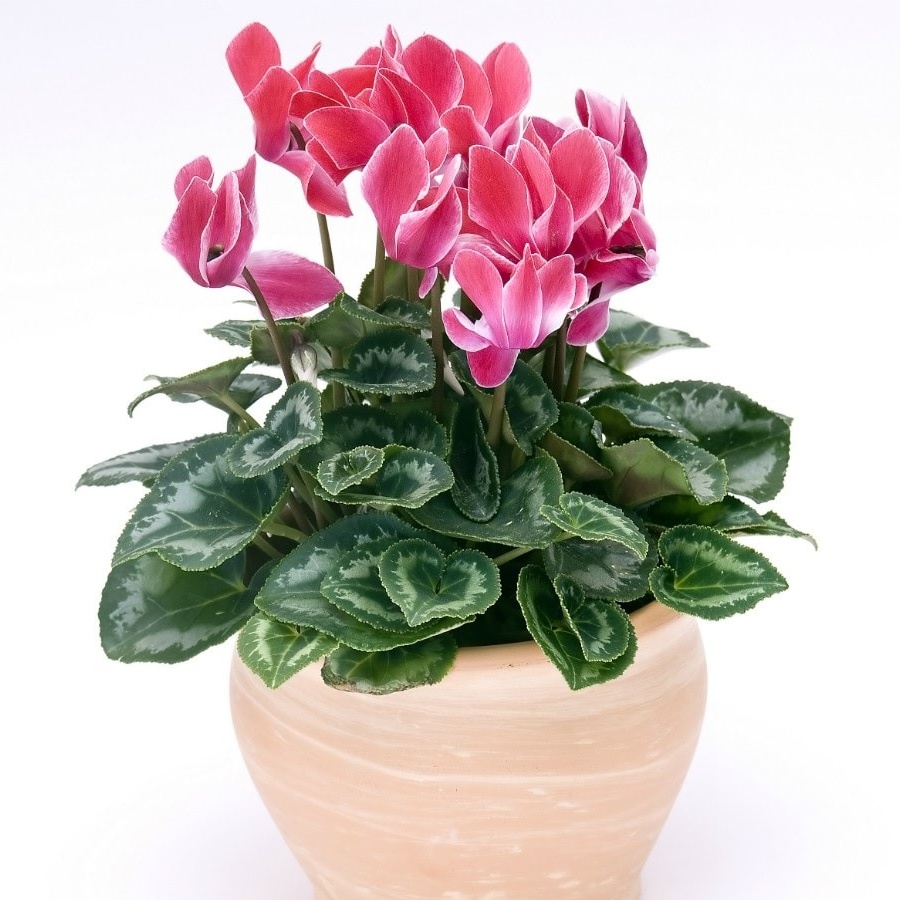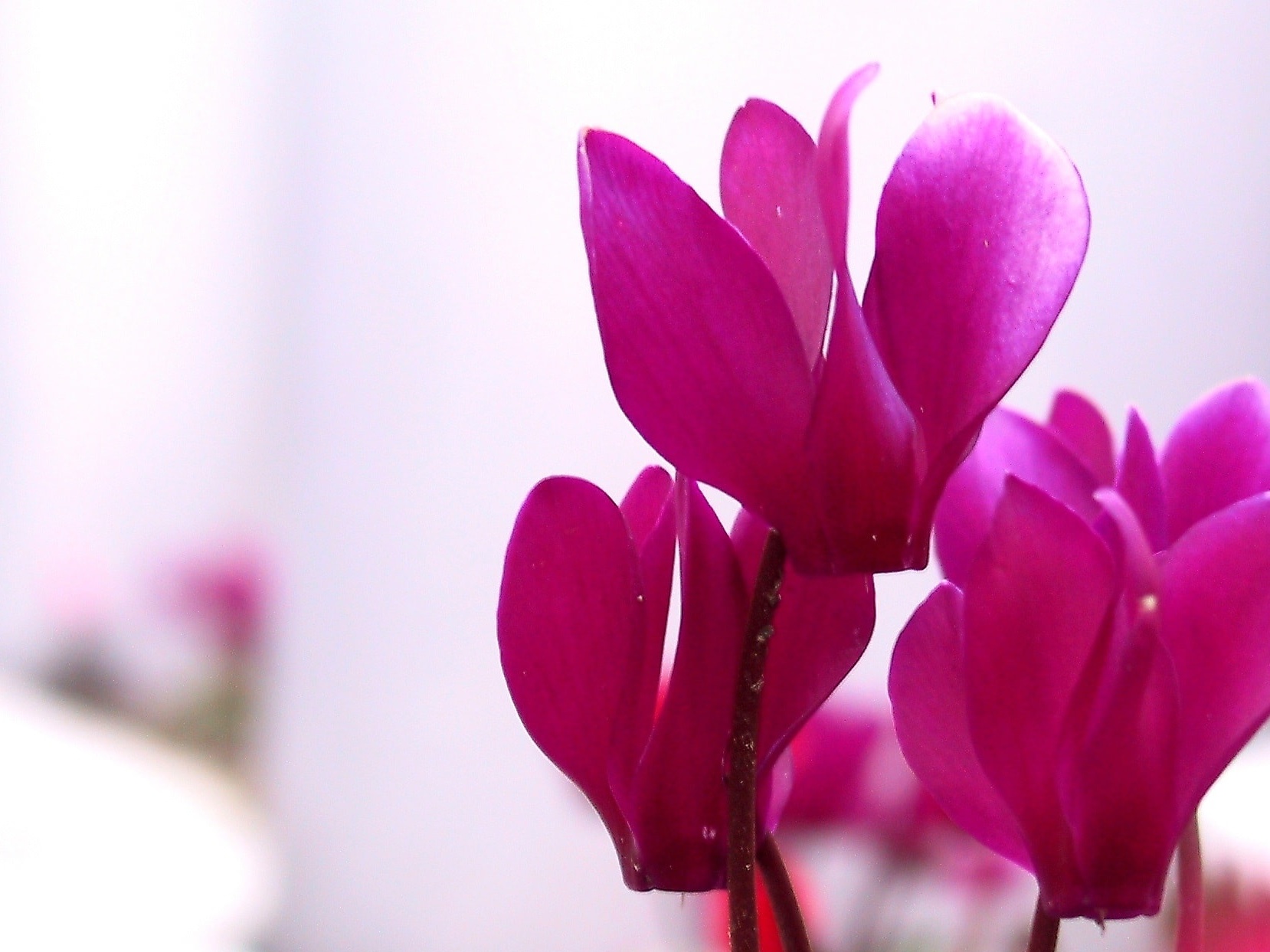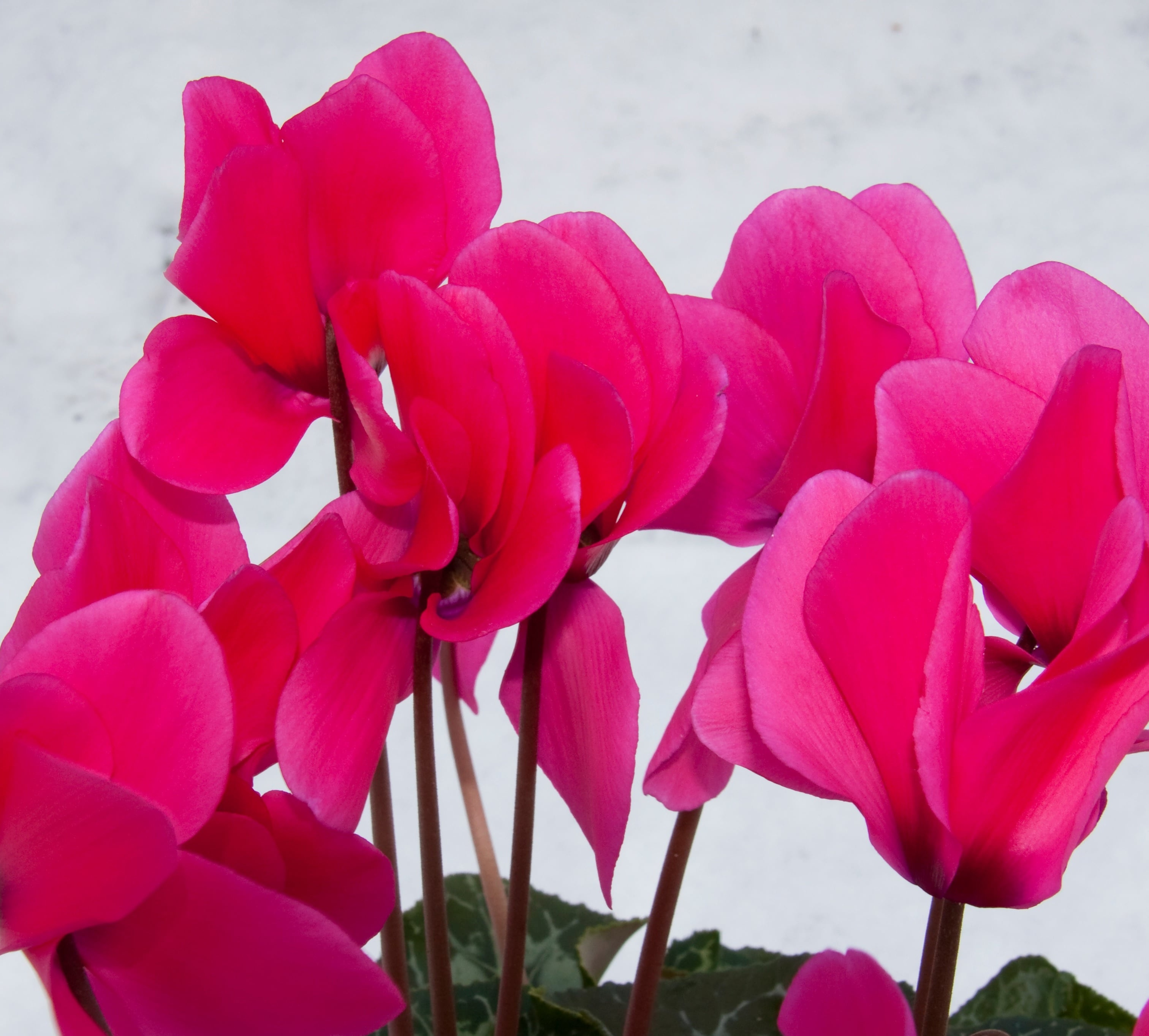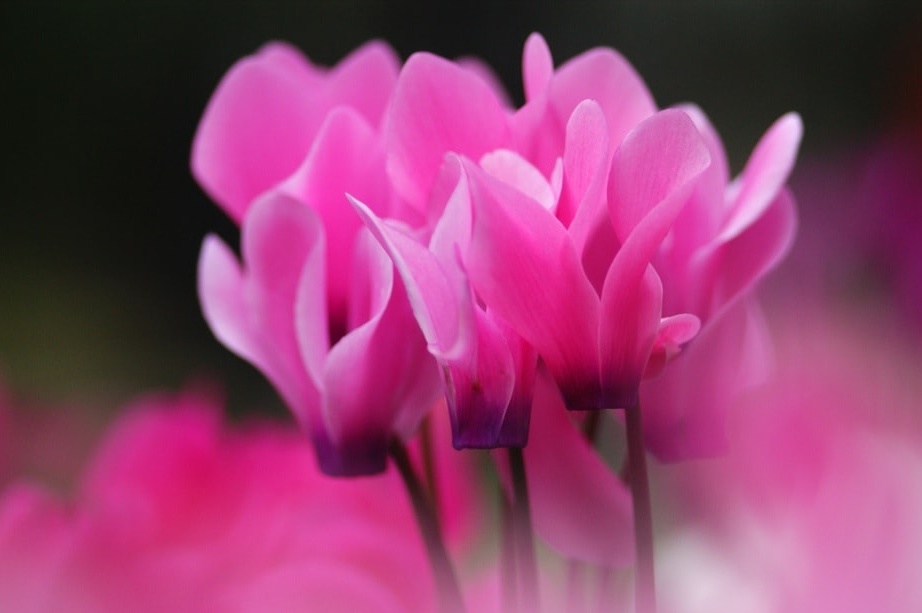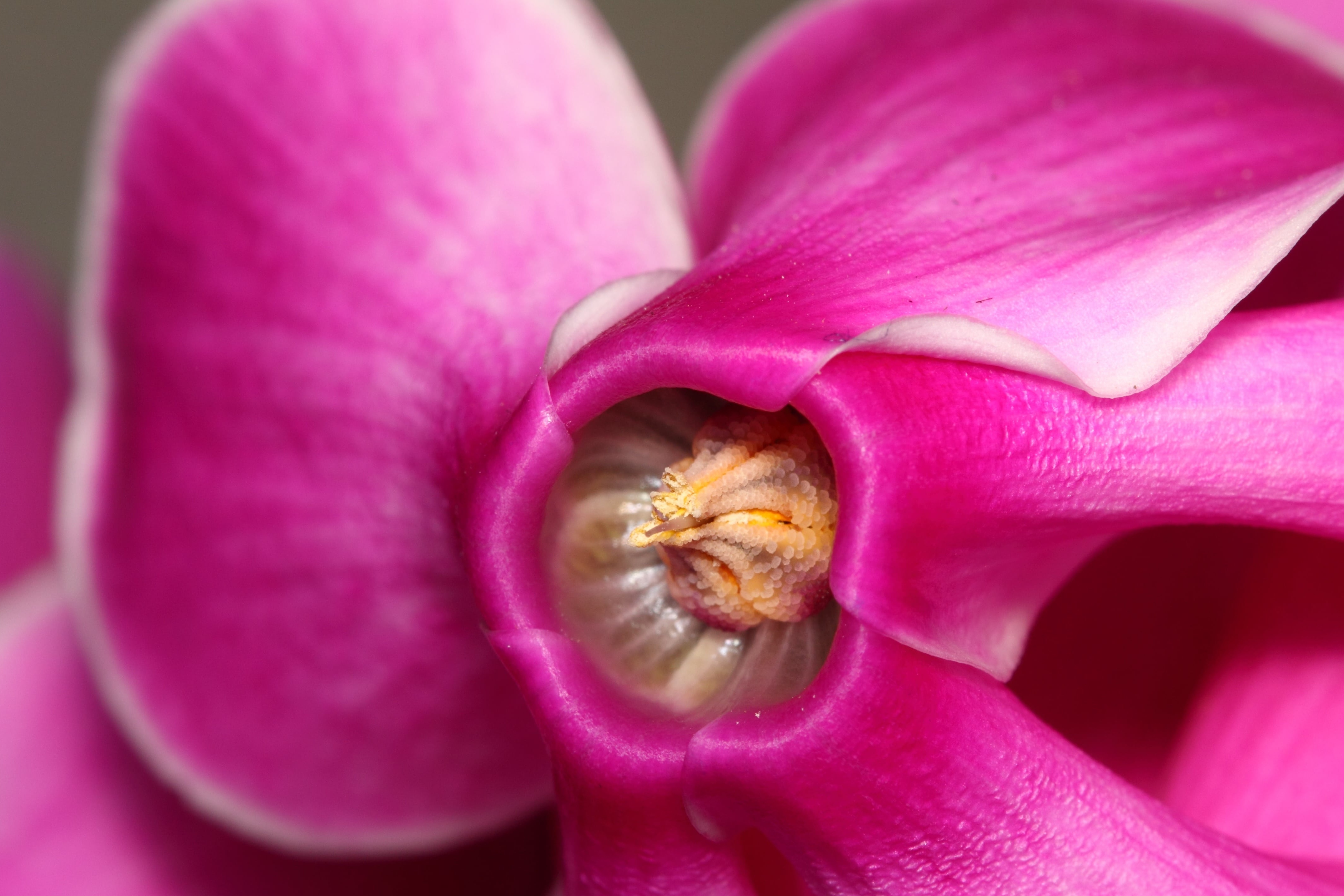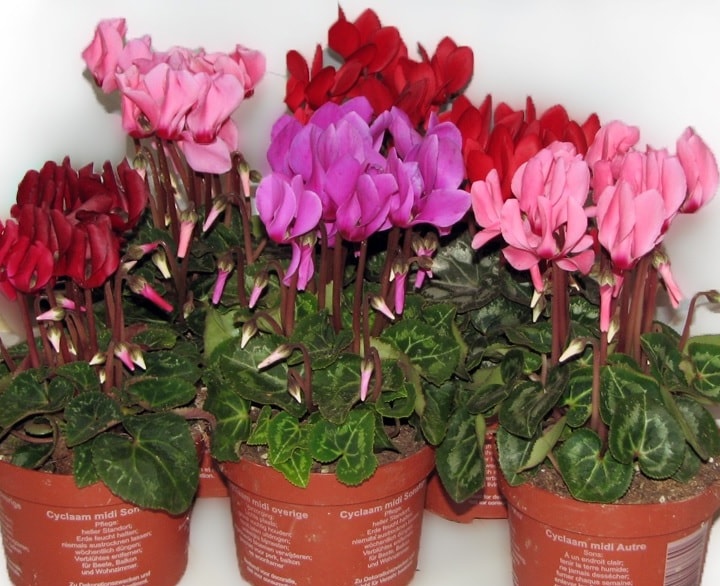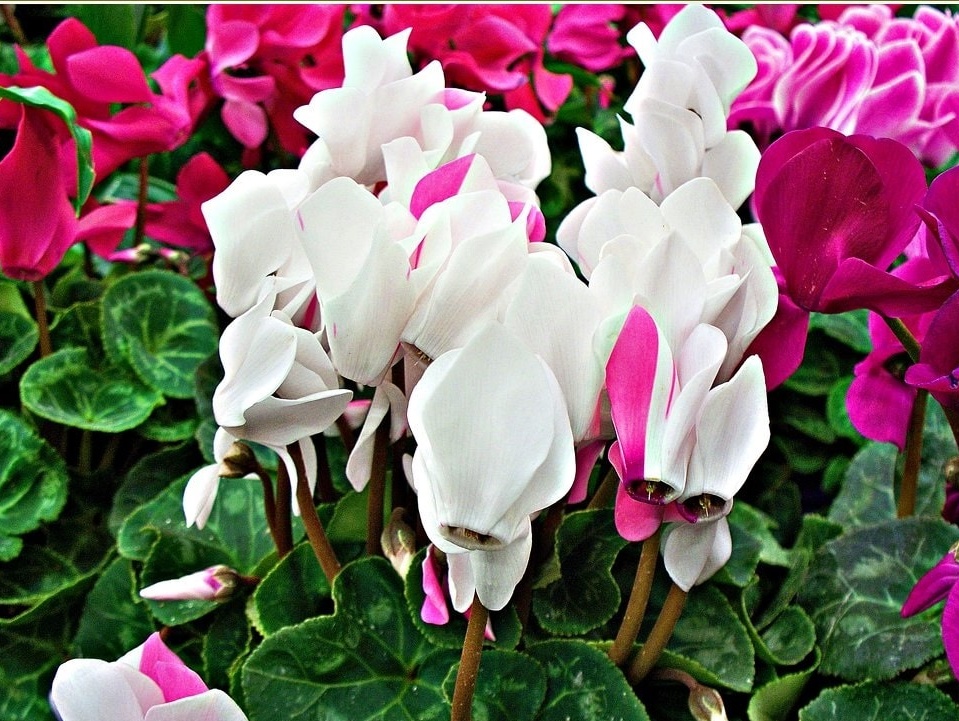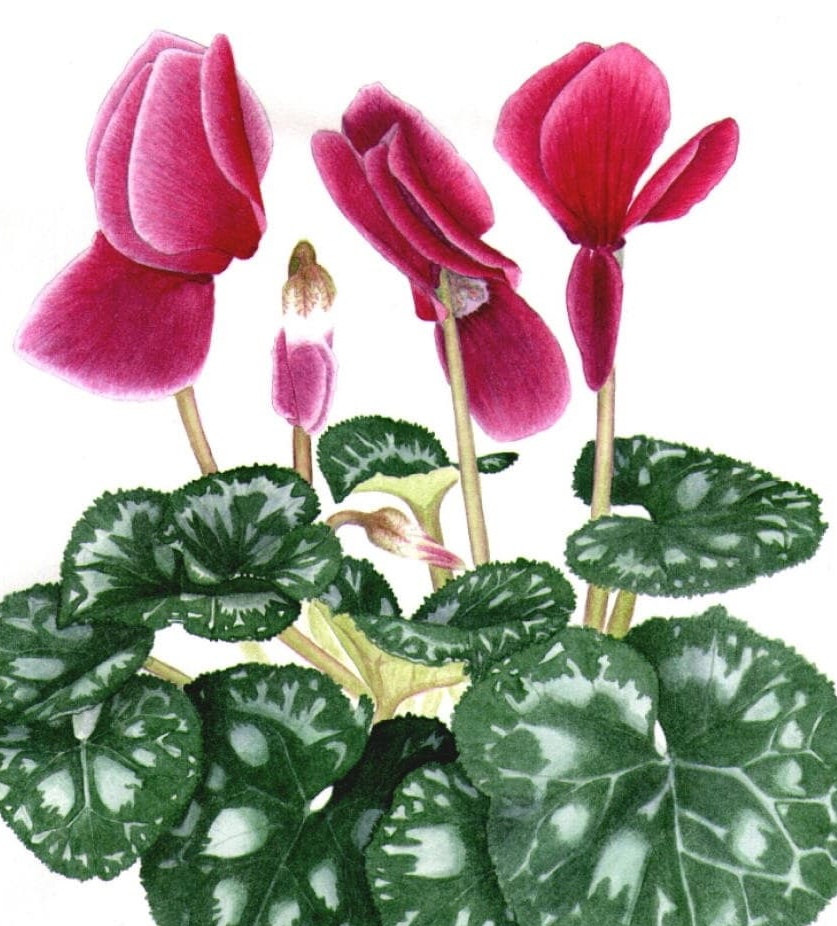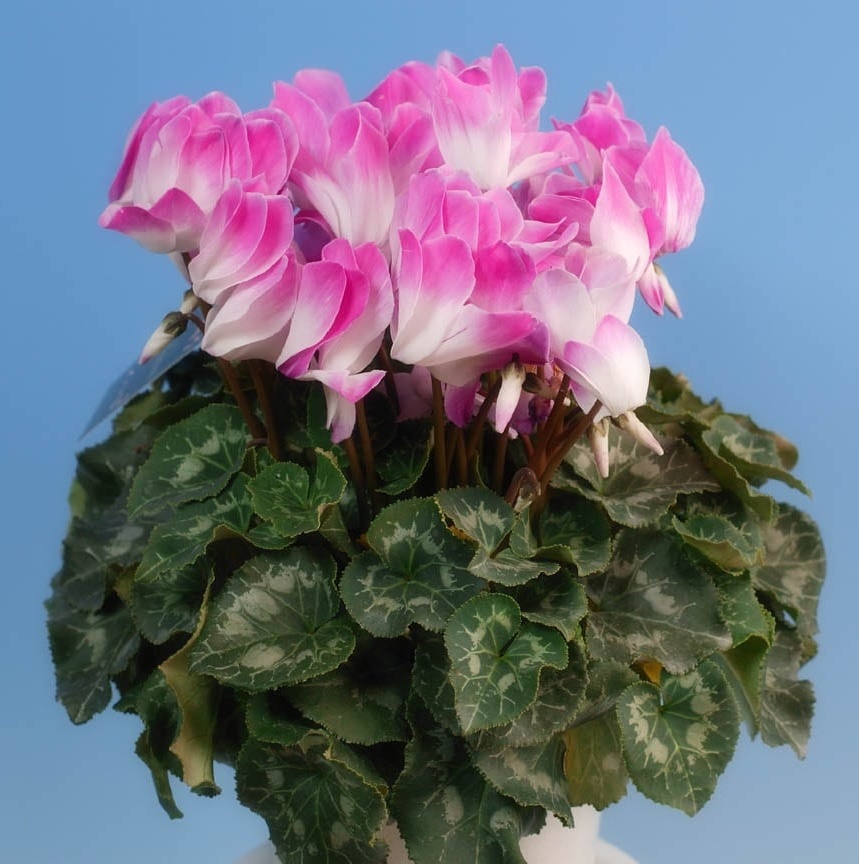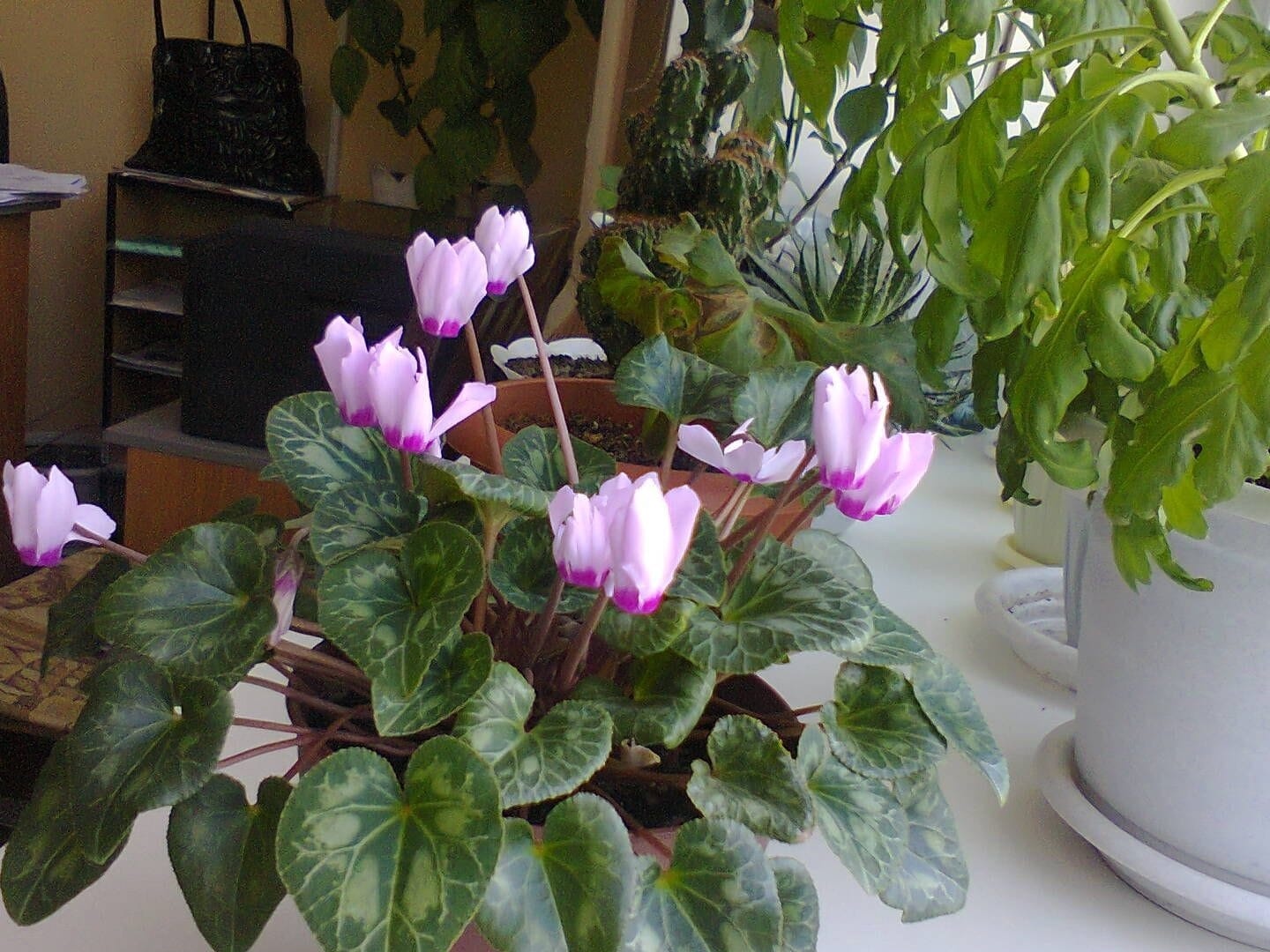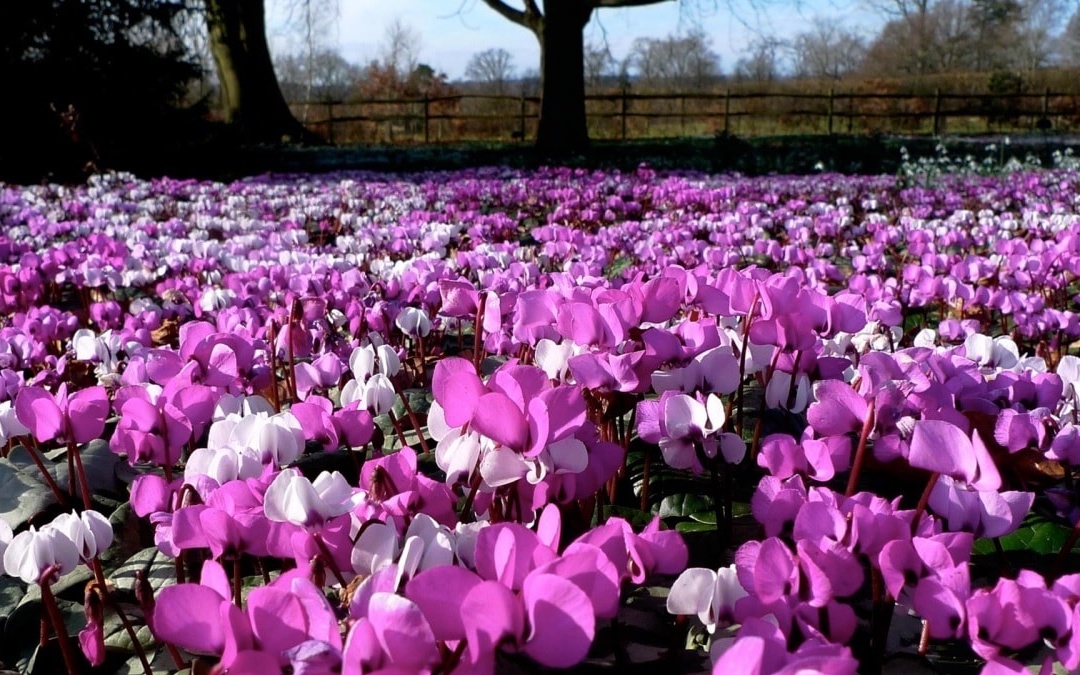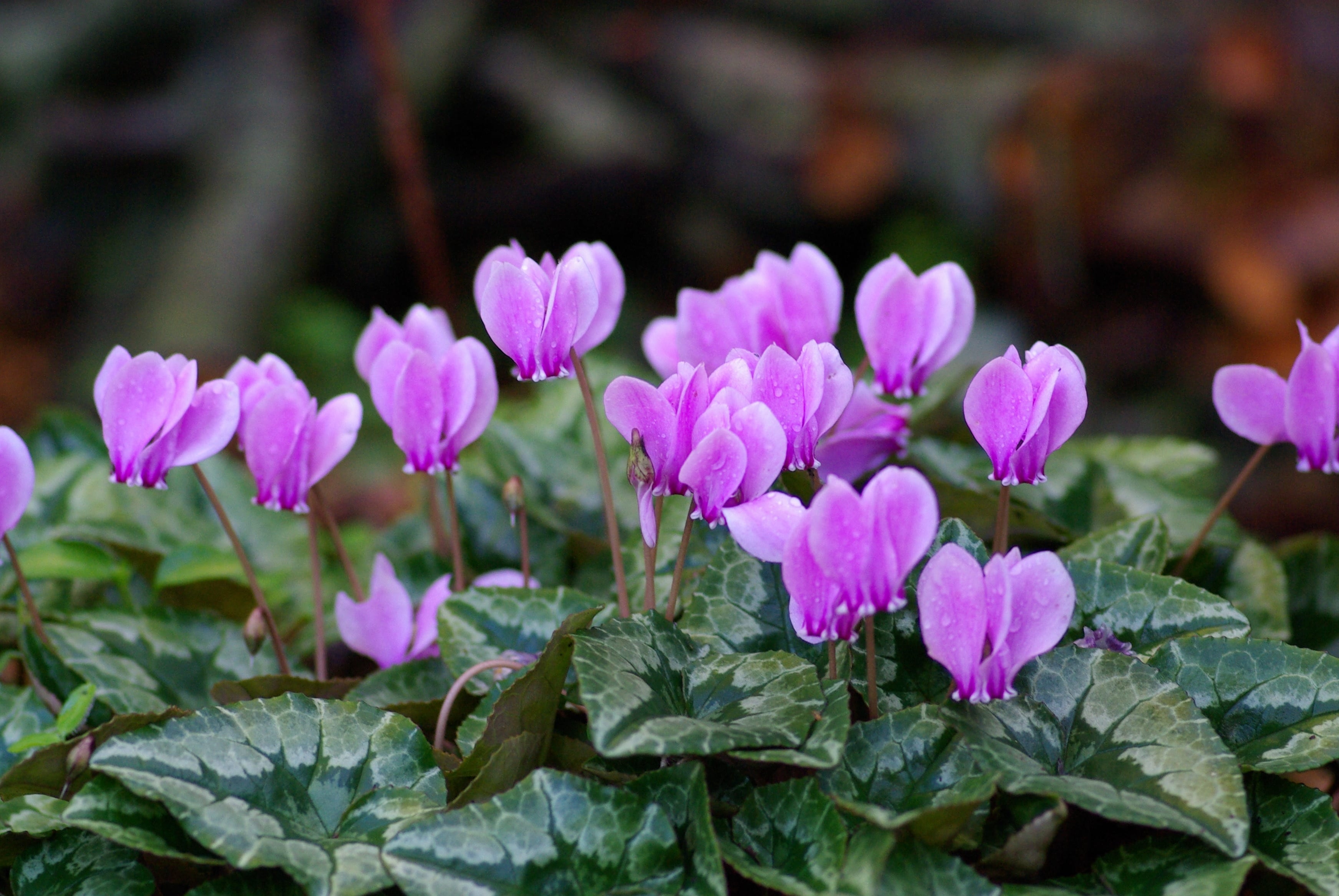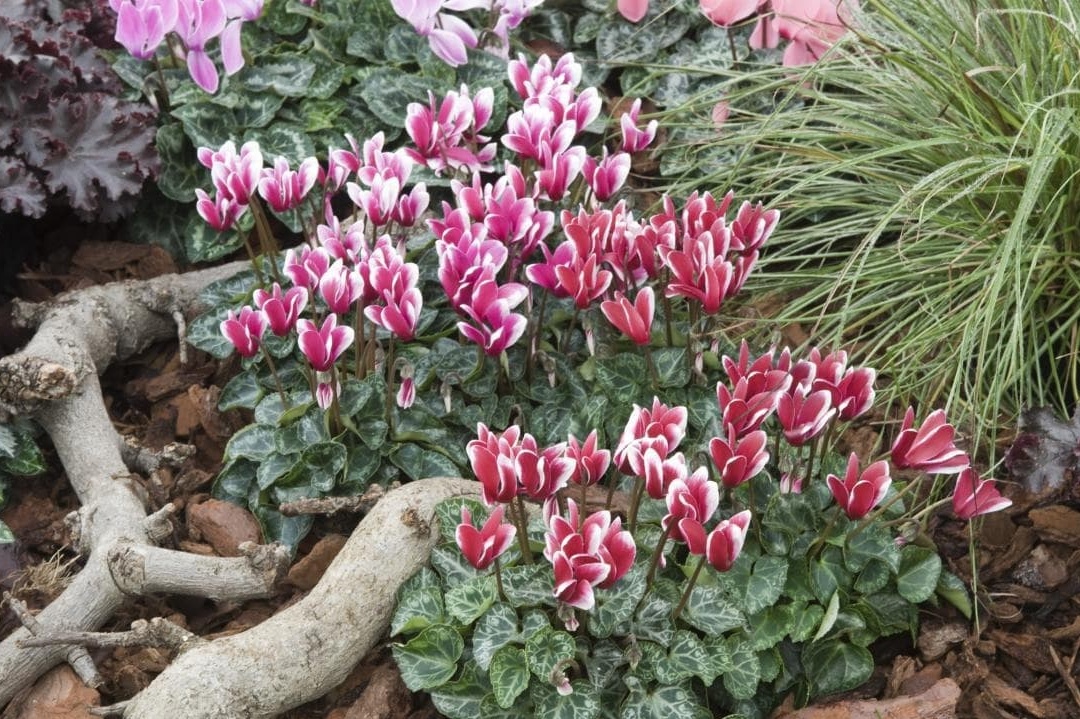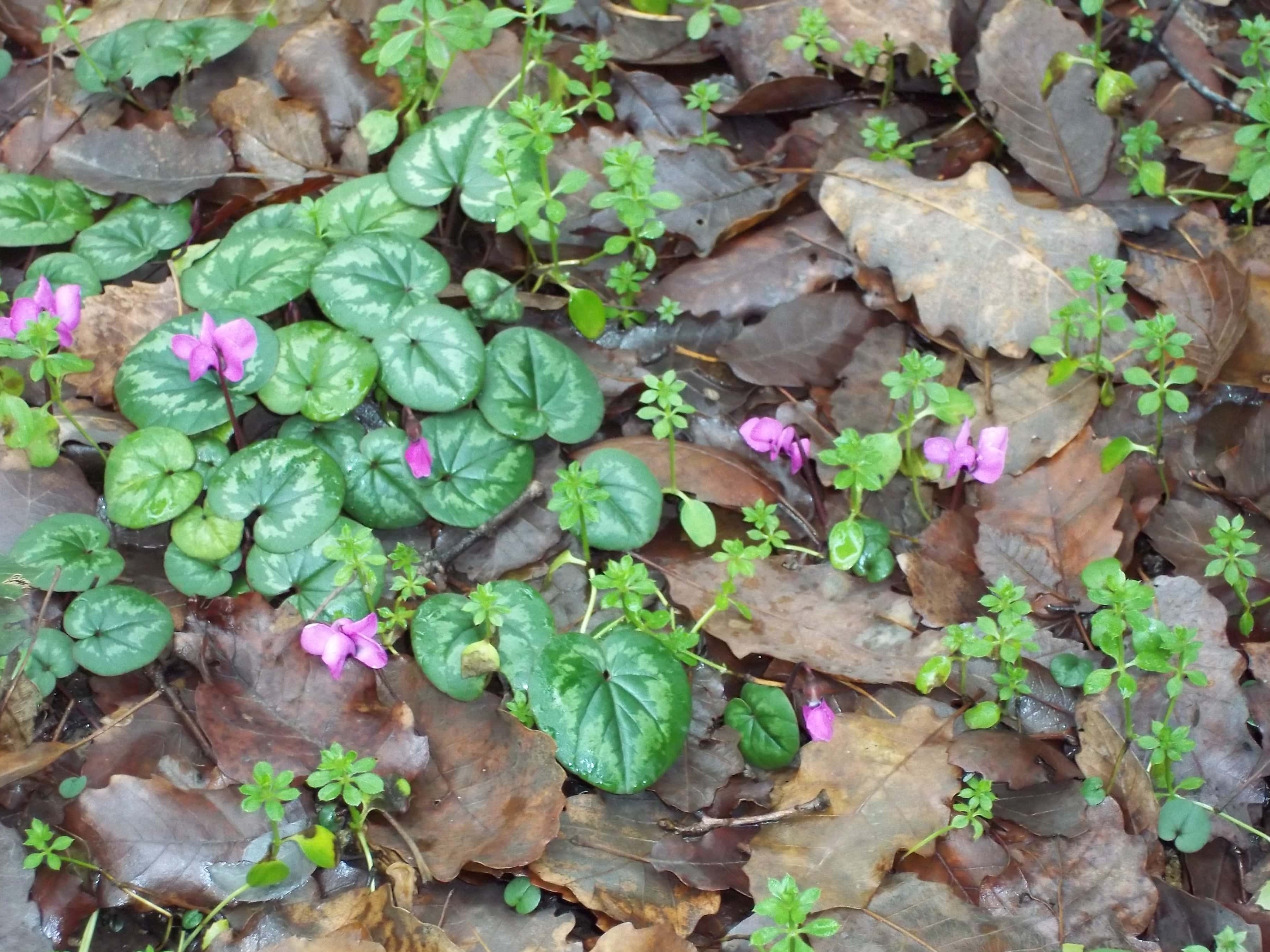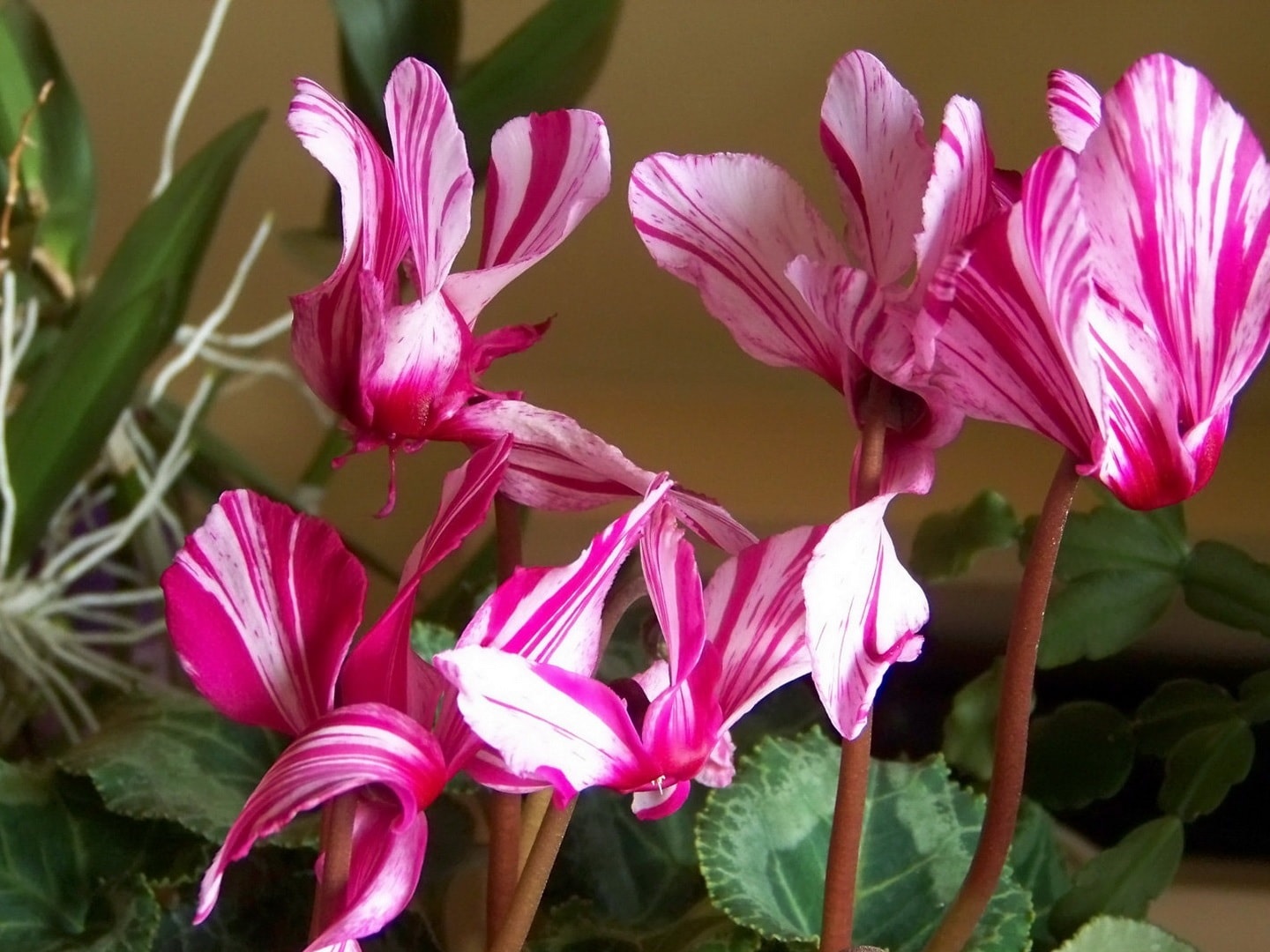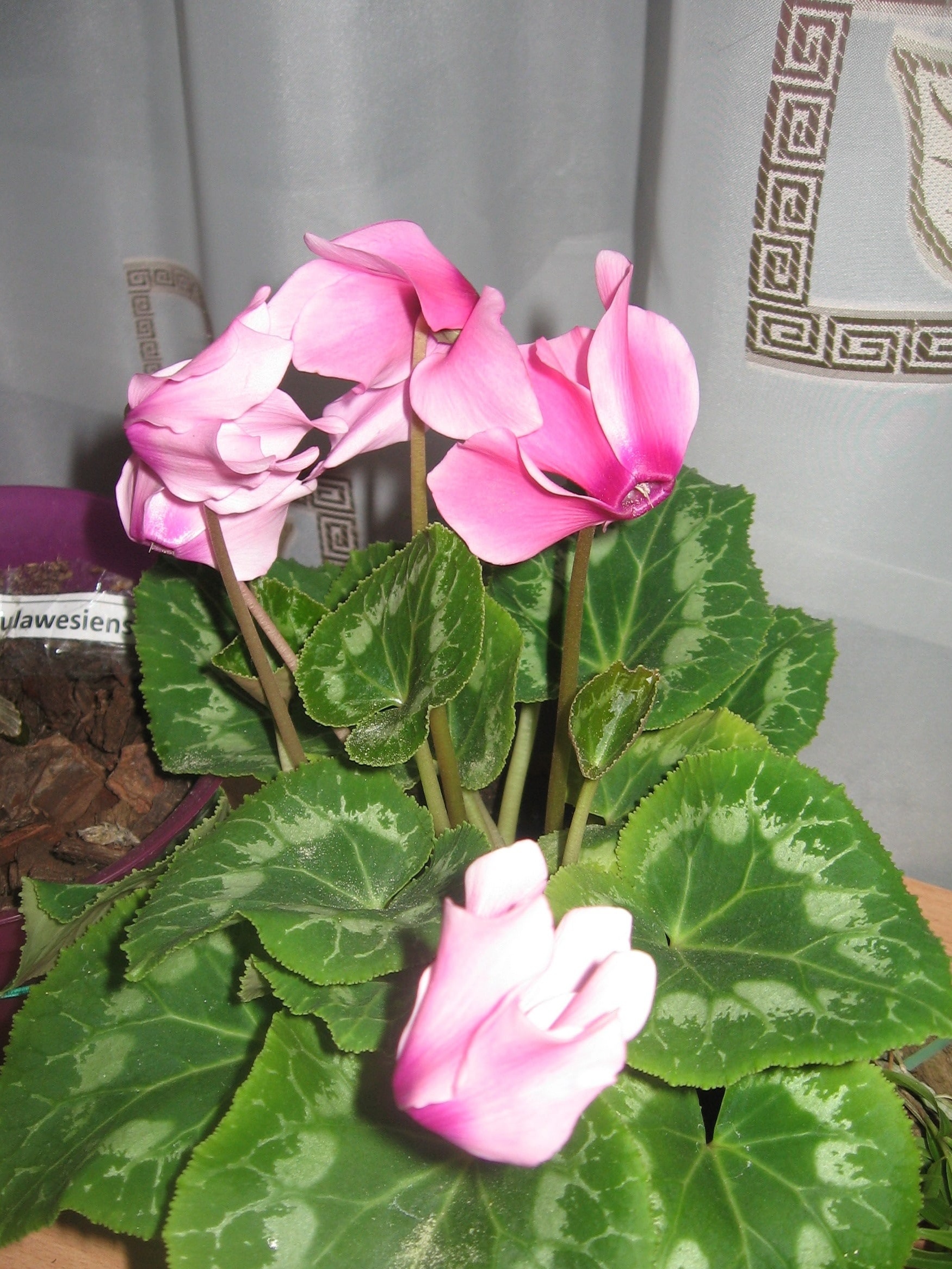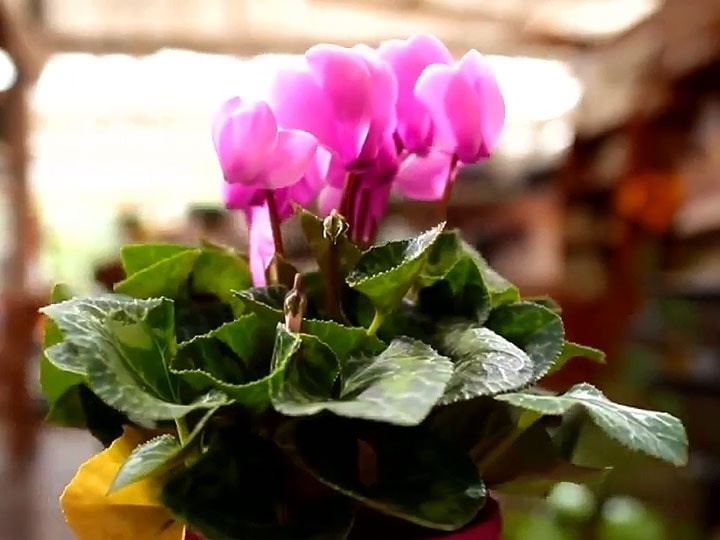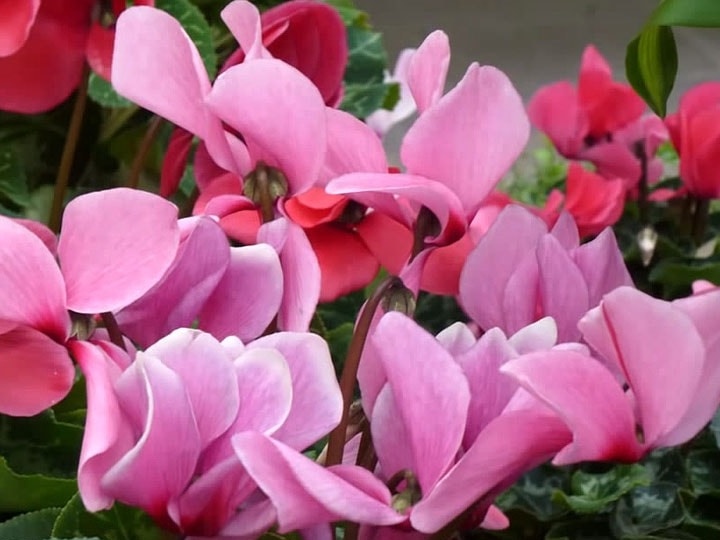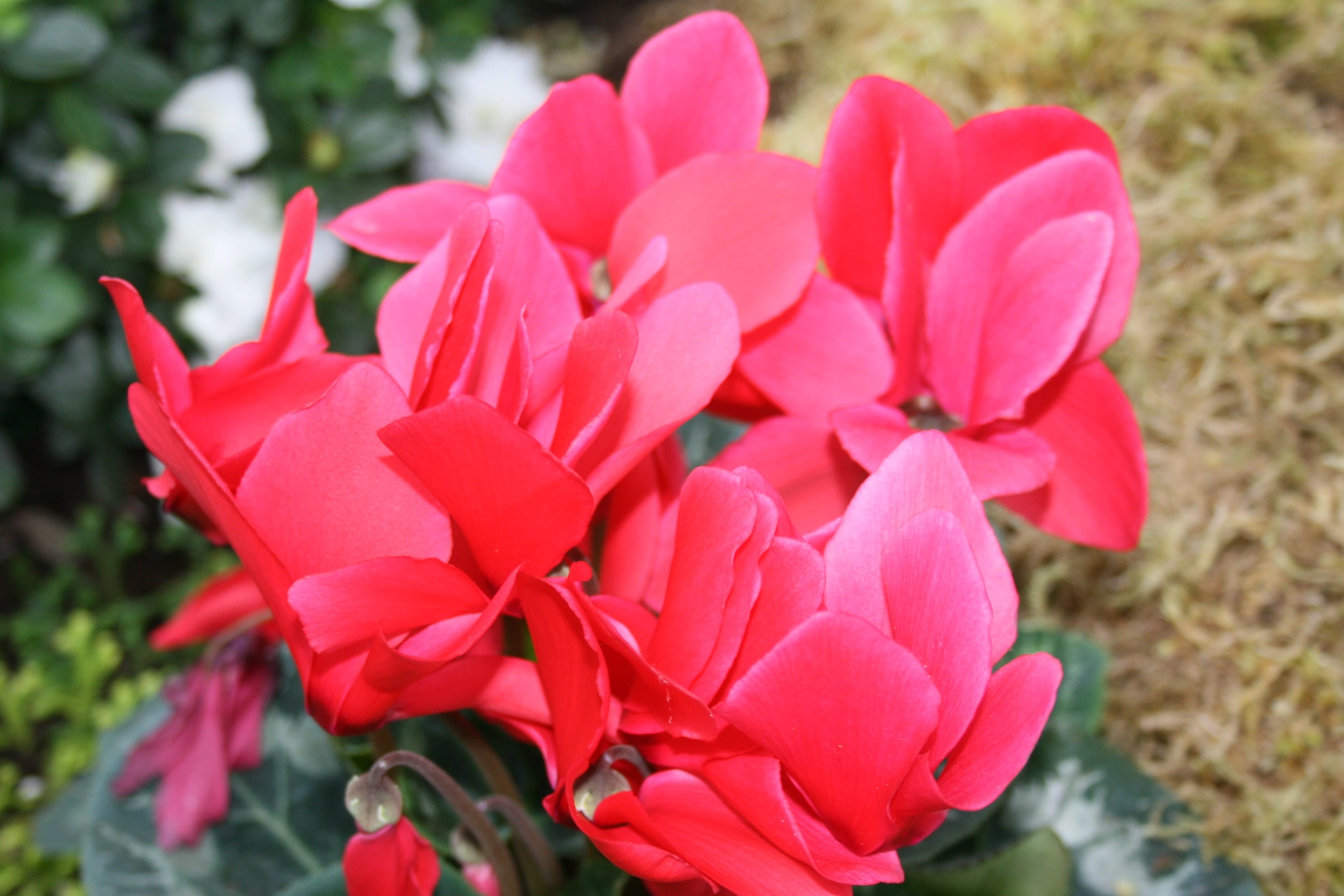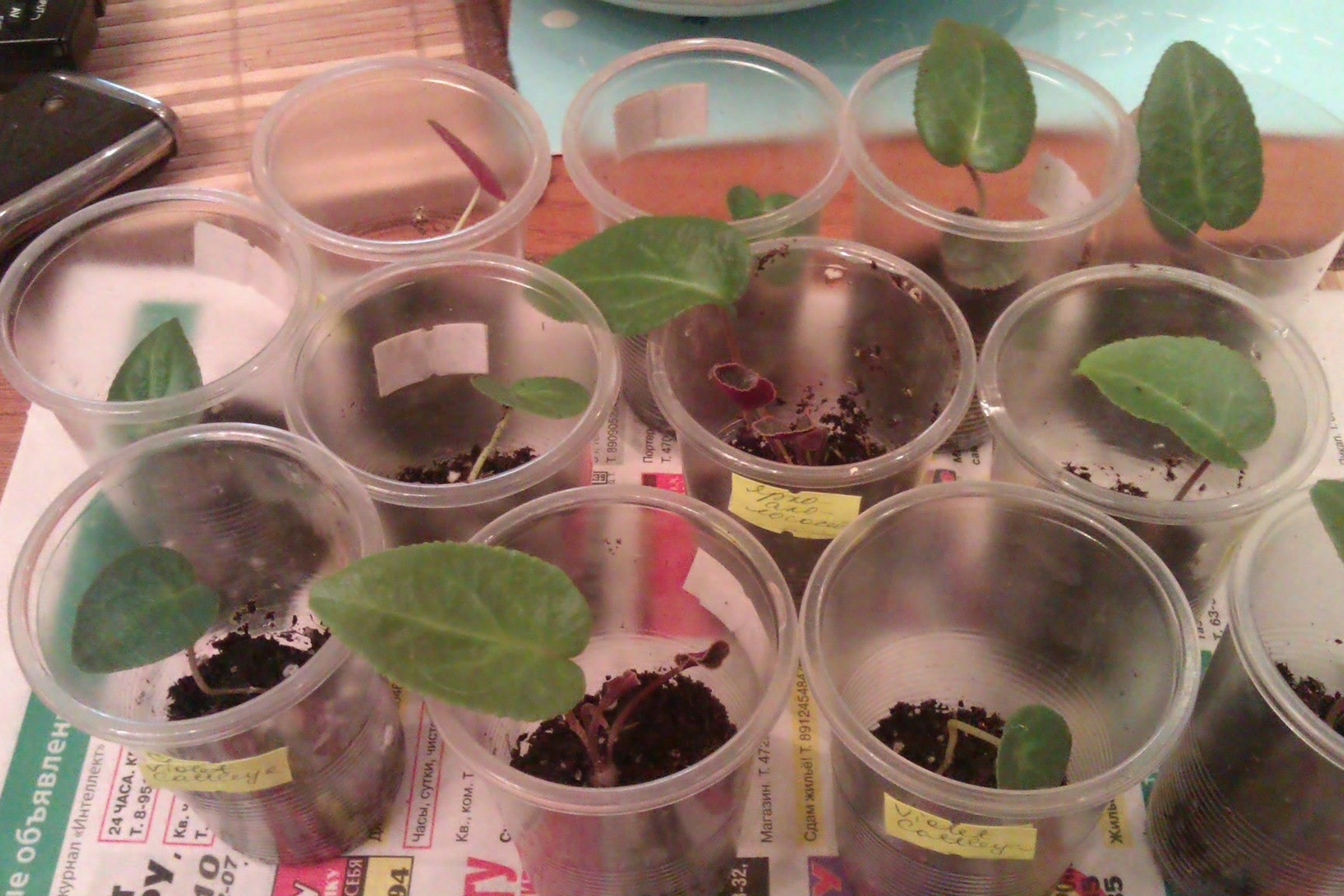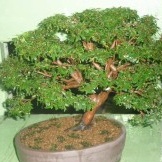Pink overflows on cyclamen petals
Cyclamen (Dryavka, Alpine violet) has already earned popularity among ornamental plants and won the hearts of most gardeners. Varieties of home cyclamen come from Persian cyclamen.
The variety of plant species and their specificity
The flower belongs to the Mersin family. The genus has about 20 species and is ranked among perennial herbaceous plants. Initially, cyclamen was common in the Mediterranean countries. Now, depending on the type of flower, you can use it as a home or garden plant.
In addition to aesthetic qualities, the plant has a vivid expression of medicinal properties. Flower extract is used to treat sinusitis as a local remedy.
You can add to the list of popular varieties:
- Cyclamen colchicum;
- Cyclamen coum subsp. Elegans;
- Cyclamen graecum;
- Cyclamen mirabile;
- Cyclamen trochopteranthum;
- Cyclamen graecum subsp. Anatolicum;
- Cyclamen parviflorum and others.
The cyclamen root has a round shape. Its height reaches 30 cm. Stunningly beautiful leaves adorn large stains, and cyclamen flowers have a bright fragrant aroma. The plant blooms in large inflorescences of all kinds of shades of pink. You can also find varieties of white, orange and lilac.
Persian cyclamen, like its hybrids, are prone to heat loving. An exception will be some varieties created by breeders specifically for cultivation in the garden in harsh climates.
Cyclamen blooms in winter, so the whole plant life cycle is subject to this schedule. Home cyclamen in the summer is at rest. In the autumn, there is a revival, young leaves appear, buds located on long peduncles.
The bush begins to bloom in late autumn and continues in winter and spring. This will allow you to decorate a room with such a plant for a long time. That is why cyclamen is a popular winter gift for flower lovers.
On large flowers, there are five arched petals. Their bright color is particularly saturated at the base.
Basic techniques for cyclamen care
For this flower, it is better to choose a cool room, the temperature regime of which varies between 13 and 16 degrees. Better if the lighting is bright. In home conditions, it is better to choose a place near the eastern and western windows. Only in winter will the south side come up.
Direct sunlight can be detrimental to the plant. In addition, close proximity to heating appliances can also have negative consequences. At the same time, a temperature below 10 degrees is undesirable, since the flower still belongs to heat-loving species.
It will be useful to keep the plant in humid air. The spray gun is not suitable for this, since cyclamen does not tolerate such an effect. It will be enough to place the pot with the plant in a tray with wet gravel or install a container with water nearby.
Before watering the flower, you must make sure that the topsoil is already slightly dry. The procedure should be carried out as follows:
- pour water at room temperature from below directly under the plant;
- let the water stand for 10-15 minutes;
- drain the remaining surplus.
Drops that have fallen on the stem and leaves are best removed with a napkin, since subsequently they can cause gray rot and destruction of the plant.
It is worth remembering that in the case of cyclamen, some drying of the soil can be allowed. The flower will easily tolerate this, in contrast to excess watering.
During the period of active vegetation, the flower constantly needs to be fed. It is better to hold an event 2-3 times a week. It is important to observe the necessary dosage, since an excess of substances can stimulate the growth of unnecessary greenery, inhibiting the development of new buds.
Withered leaves and buds should be removed regularly. The peduncle with an obsolete flower must be twisted completely directly from the tuber. Failure to comply with this recommendation may result in decay and death of the plant.
In early spring, cyclamen ceases to bloom. At this time, its leaves turn yellow and fall. The growing cycle is suspended and the plant slows down development. During this period, it is necessary to reduce watering.
This periodization does not apply to most home cyclamens - they grow and bloom constantly. As for street plants, their tubers during hibernation need to be stored in the soil in a cool place and only occasionally moistened.
In September, you can notice new fresh leaves on the plant. This indicates the beginning of a new period of vegetation. At this time, it is worth taking care of the new topsoil or transplanting the plant to a new place.
Now it is important to again increase the volume of water and resume feeding. Soon after, new buds and lush flowering can be expected.
The nuances of transplanting and propagating cyclamen
The most suitable period for a transplant is the end of summer. It was at this time that the flower emerged from a state of rest. An obvious reason for the transplant will be the fact that the tuber has grown and filled with itself the entire space of the pot.
In the process of transplantation, a slightly larger pot with a fresh substrate is selected, in which a tuber with young roots is placed. Place the tuber in a pot should be on the same level with the ground or slightly higher.
From above, you need to sprinkle all this with sand and compact. The composition of the soil for cyclamen includes coarse sand and organic matter:
- coconut fiber;
- leaf humus;
- rotted bark;
- peat.
Such a composition should be characterized by a slightly acid reaction.
Cyclamen propagation occurs through divided tubers or sowing seeds. Florists characterize the process of reproduction of this flower as complex.
If the method of propagation using the division of tubers was chosen, then here should be remembered several points of growth that are on the tuber. A site with such a point is cut off with a knife and transplanted into a separate pot.
If reproduction using seeds is expected, then the plant should first be pollinated several times. To do this, use a soft brush. After the flowers wilt, let them dry right on the bush.
Without waiting for the opening of the box from it you need to extract the seeds. Then they are soaked for a day in warm water. Swollen seeds are sown in a box with soil. The distance between the seeds should be large.
From above, the crops are covered with vermiculite in a layer of 5 mm and regularly moistened with a spray bottle. It is better to store such a blank in the dark and cool. After 4 weeks, the first shoots will appear.
After the first sprouts have been noticed, they can be placed in the light. When the first leaves appear on the plants, they can be carefully transplanted to their permanent place. Such cyclamens will bloom for the first time in a year.
Cyclamens look great in the house and on the beds. Their bright shades will decorate the room and will attract the eyes of visitors. In the garden, such a flower will effectively dilute the foliage greens and brighten up the landscape.

